

PhD Quotes: Motivational Quotes For The PhD Students Needing It
PhD is tough, and many that graduated from one can tell you the difficulties and challenges. These graduates also may have many nuggets of wisdom to share with those that are in the middle of the journey.
In this post, we share a couple of quotes about PhD studies. Some are funny, while some are pure motivational gem to push you through the tough times.
Funny PhD Quotes
Embarking on a PhD journey is akin to navigating a labyrinth where humor becomes a necessary compass.
Amidst the rigorous demands of academia, finding a moment to laugh can be as rejuvenating as a good night’s sleep.
If you’re a:
- PhD student,
- doctoral candidate, or even
- a seasoned academic
These funny PhD quotes might just be the motivational spark you need during those seemingly endless stretches of grinding work.
Imagine sitting down, coffee in hand, ready to tackle that chapter you’ve revised countless times. You tell yourself, “It’s easy and normal to feel unmotivated,” but deep down, you know the version of “easy” in front of you is an illusion—painfully shattered by the academic rigor of a PhD.
This brings us to our first humorous gem:
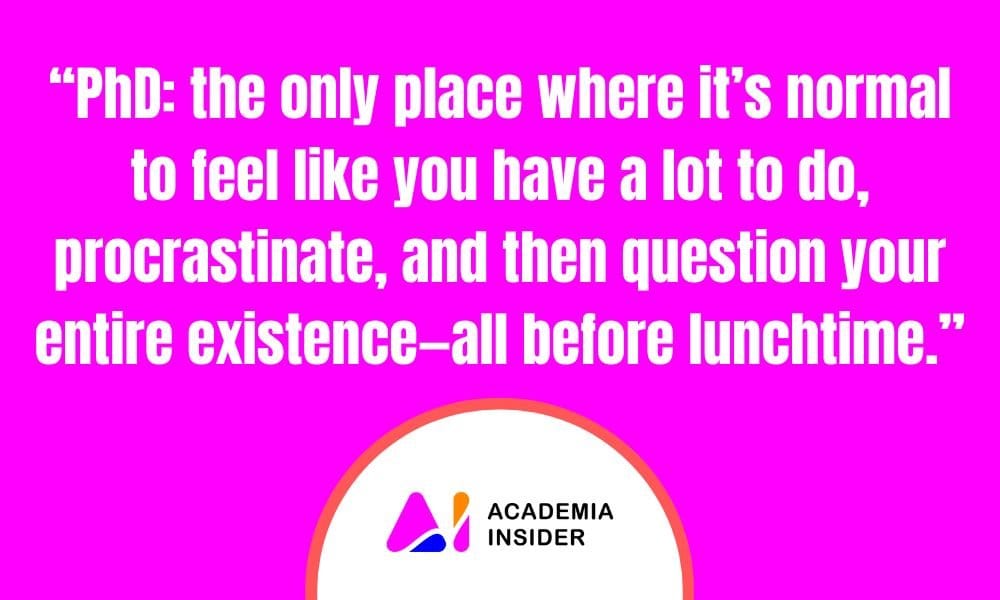
It’s a funny take on the daily grind where procrastination and existential crises often walk hand in hand.
Moving on, who hasn’t faced the moment when, after pouring your heart and soul into a piece of work, feedback makes you feel like it just wasn’t right? Here’s a saying that encapsulates that feeling with a twist of humor:

This quote pokes fun at the relentless pursuit of perfection that often characterizes the doctoral journey, reminding us that sometimes, ‘good enough’ really is just that.
Lastly, the world of PhDs is fraught with the high stakes of research, where every finding could potentially be a research of note or lead nowhere useful.
This reality is humorously captured in the quote:

It’s a light-hearted nod to the unpredictable nature of doctoral research, where despite the best efforts, the path to groundbreaking discoveries can often feel like chasing a mirage.
These funny quotes serve as small, actionable tasks of intellectual stimulation, reminding PhD students and graduates alike that the journey, though lonely and rewarding, doesn’t have to be devoid of laughter.
So the next time you feel overwhelmed, remember these sayings, chuckle, and keep climbing that higher mountain of academia.
Motivational Quotes For The PhD Student Struggling
Navigating the PhD journey can feel like climbing a mountain with no peak in sight. You’re not alone in this.
Every PhD student experiences moments where the sheer volume of work feels overwhelming, akin to having a huge elephant in front of you that you’re supposed to eat in its entirety.
In these moments, a dose of motivation can make all the difference. Here are three motivational quotes tailored for you, the PhD student, to reignite that spark when the going gets tough.
Remember, it’s easy and normal to feel unmotivated for certain stretches of time. This is part of the doctoral journey. The first quote to keep close to your heart is:
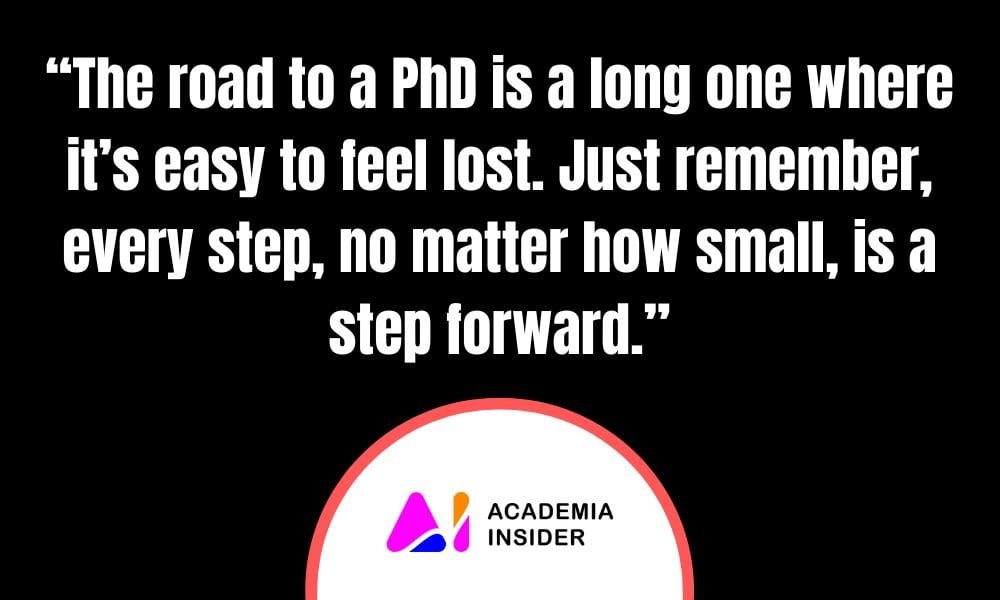
This saying underscores the importance of celebrating small victories and progress, no matter how insignificant they may seem.
When you’ve revised a chapter countless times and still feel it’s not right, it’s easy to get disheartened. This is where our second quote comes in:

This motivational nugget is a reminder that your efforts are closer to fruition than you think, even when doubt creeps in.
Lastly, facing the mammoth task of a dissertation, you might feel like procrastination is your only companion. Here’s a quote to help shift that perspective:
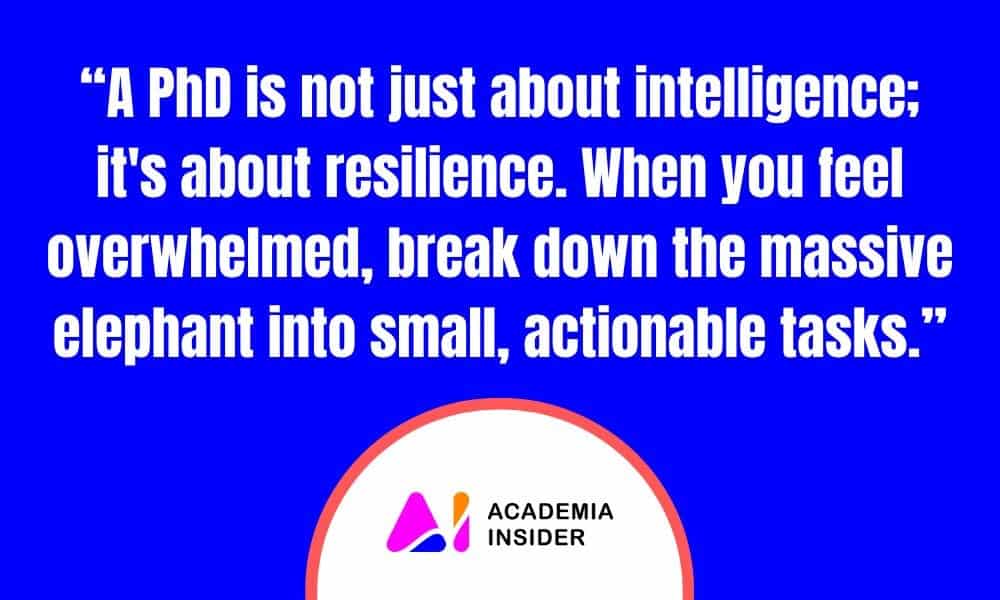
This speaks to the strategy of tackling your workload piece by piece, making the insurmountable seem manageable.
If You Are Pushing Through Your Dissertation
Every PhD student knows the unique blend of exhilaration and exhaustion that accompanies the pivotal phase of doctoral studies – the dissertation writing.
It’s a marathon, not a sprint, and sometimes, a few words of wisdom are all you need to refuel your motivational reserves. Here are three carefully chosen motivational quotes to help you, the doctoral candidate, push through your dissertation hurdles.
First, embrace the complexity of your journey with this empowering saying:

This quote reminds you that no matter how massive the task seems, breaking it down into smaller, manageable parts makes it entirely possible to ‘finish eating’ the elephant, piece by piece.
Then, when you find yourself revising a chapter for the umpteenth time and feeling like it’s still not “right,” hold onto this nugget of wisdom:

This motivational quote underscores the importance of recognizing your efforts and understanding that perfection is an illusion, and may not worth the pursuit at the cost of your well-being.
Lastly, when the weight of your dissertation feels overwhelming, and you feel like procrastinating, consider this:

This quote is a powerful reminder that the path to obtaining your doctorate is indeed long and filled with challenges, but every step you take brings you closer to the pinnacle of academic achievement—your PhD graduation.
Phd Quotes For Doctoral Students
These quotes are more than words; they are reminders of your strength and capability. Keep them in mind as you navigate the challenging yet rewarding path to your doctorate.
Every PhD student’s journey is unique, but the essence of persistence and resilience is universal. Keep pushing!

Dr Andrew Stapleton has a Masters and PhD in Chemistry from the UK and Australia. He has many years of research experience and has worked as a Postdoctoral Fellow and Associate at a number of Universities. Although having secured funding for his own research, he left academia to help others with his YouTube channel all about the inner workings of academia and how to make it work for you.
Thank you for visiting Academia Insider.
We are here to help you navigate Academia as painlessly as possible. We are supported by our readers and by visiting you are helping us earn a small amount through ads and affiliate revenue - Thank you!

2024 © Academia Insider

50 Inspirational Quotes For PhD Students: Nurturing Brilliance on Academic Journey

Embark on an inspiring journey of academic pursuit with “50 Inspirational Quotes For PhD Students.” This remarkable compilation of unique and original quotes is a source of motivation, resilience, and wisdom for those undertaking the rigorous path of doctoral studies. Let these powerful words of encouragement uplift your spirits, ignite your passion for research, and remind you of the remarkable impact your work can have on the world.
50 Inspirational Quotes For PhD Students
1. “Embrace the challenges of your PhD journey, for they will shape you into a resilient and brilliant scholar.”
2. “In the realm of knowledge, your PhD is the key to unlocking doors of discovery and leaving a lasting legacy.”
3. “Rise above self-doubt and believe in your ability to make a significant contribution to your field through your PhD research.”
4. “Every setback is an opportunity to learn and grow. Keep pushing forward, and success will be your reward.”
5. “The pursuit of knowledge is a noble endeavor, and your PhD is a testament to your dedication and passion.”
6. “Remember, the greatest discoveries often emerge from the moments when you dare to question the status quo.”
7. “Your PhD thesis is not just a document; it is a reflection of your ability to think critically and innovate.”
8. “The path to a PhD may be long and winding, but the destination will be worth every step.”
9. “Stay curious, for curiosity fuels the fires of discovery and fuels the drive to explore uncharted territories.”
10. “When the going gets tough, remember why you started. Your passion will guide you through the darkest of times.”
11. “In the realm of academia, failure is not the end but a stepping stone towards greater success.”
12. “Embrace collaboration and seek the wisdom of fellow scholars, for the collective mind is a force to be reckoned with.”
13. “The impact of your research will transcend the walls of academia, shaping the world for generations to come.”
14. “Celebrate the small victories along your PhD journey, for they are the building blocks of your ultimate triumph.”
15. “Find joy in the pursuit of knowledge, for it is in the process that you truly discover the beauty of learning.”
16. “Remember that every question holds the potential to unravel mysteries and pave the way for groundbreaking discoveries.”
17. “Perseverance is the key to conquering any obstacle on your path to obtaining your PhD.”
18. “Be open to new ideas and perspectives, for it is through diversity that innovation truly thrives.”
19. “Your PhD is not just an academic achievement; it is a testament to your resilience, dedication, and unwavering spirit.”
20. “Embrace failure as a teacher, for it provides invaluable lessons that will propel you closer to success.”
21. “Dare to challenge existing paradigms and forge your own path of discovery in your PhD research.”
22. “Your unique perspective and insights have the power to reshape the world. Believe in your ability to make a difference.”
23. “Embrace the beauty of the unknown, for it is within those uncharted territories that breakthroughs await.”
24. “Through your PhD journey, you are not just a student but a pioneer of knowledge, carving your own intellectual legacy.”
25. “Never forget the transformative power of your PhD. You have the capacity to change lives and make the world a better place.”
26. “As a PhD student, you possess the ability to turn questions into discoveries and uncertainties into knowledge.”
27. “Seek inspiration from the great minds that came before you, but let your own unique voice shine through in your research.”
28. “Remember, the value of your PhD lies not only in the destination but also in the transformative journey you undertake.”
29. “Embrace the interdisciplinary nature of academia, for it is at the intersections that groundbreaking ideas are born.”
30. “Your passion for learning and dedication to your field will guide you through the challenges and propel you towards success.”
31. “A PhD is not just about acquiring expertise; it’s about pushing the boundaries of human understanding.”
32. “In the face of adversity, let perseverance be your fuel and determination be your guiding light.”
33. “Embrace the moments of uncertainty, for it is within those gaps that profound discoveries and insights emerge.”
34. “Remember that failure is not a reflection of your worth but an opportunity to learn, adapt, and grow.”
35. “Your PhD is an opportunity to contribute to the collective wisdom of humanity and leave an indelible mark.”
36. “Never underestimate the power of collaboration and the magic that unfolds when minds come together.”
37. “Celebrate the small victories, for they are stepping stones towards the greater triumphs awaiting you.”
38. “As a PhD student, your thirst for knowledge is a beacon that will guide you towards profound revelations.”
39. “In the pursuit of your PhD, don’t be afraid to challenge convention and explore unconventional paths.”
40. “Every experiment, every failure, and every success brings you one step closer to becoming a true master of your field.”
41. “Let passion be the driving force behind your research, igniting a fire that fuels your intellectual journey.”
42. “Amidst the rigors of academia, remember to nourish your mind, body, and soul. Self-care is essential for success.”
43. “Your PhD journey is a testament to your courage, resilience, and unwavering commitment to the pursuit of knowledge.”
44. “Keep your eyes open to the beauty of the world, for inspiration can often be found in the most unexpected places.”
45. “Your unique perspective and original ideas have the power to reshape paradigms and challenge the status quo.”
46. “Approach each research question with an open mind, for the true essence of learning lies in embracing diverse viewpoints.”
47. “Believe in the transformative potential of your PhD, as it empowers you to make a difference in the lives of others.”
48. “Let curiosity be your guiding compass, leading you to uncharted territories where groundbreaking discoveries await.”
49. “In your pursuit of knowledge, remember that perseverance, resilience, and adaptability are your most valuable companions.”
50. “Your PhD is not the end but the beginning of a lifelong journey dedicated to unraveling the mysteries of your chosen field.”
Written by Gabriel Cruz - Foodie, Animal Lover, Slang & Language Enthusiast
Leave a Comment Cancel reply
Save my name, email, and website in this browser for the next time I comment.
PhDLife Blog
Sharing PhD experiences across the University of Warwick and beyond
Motivational Quotes for the PhD Journey

The PhD journey is a long one where it’s easy and normal to feel unmotivated for certain stretches of time. We all need a little inspiration to perk us up during those days. Jenny Mak offers you four handy motivational quotes for when the going gets tough during your PhD…
“Success requires Action”
We all procrastinate. It’s something that is easy to do especially at the beginning of your PhD when it feels like you have a lot of time. But to be successful—by this I mean successfully finishing and submitting your thesis—it’s not enough to say that you want a PhD, you also have to do the work. Doing the work means sitting down at your desk, butt firmly stuck to chair, and just doing it. It helps to set yourself concrete goals like writing 500 words a day, and trying your best to meet that target every day.
“Progress, not Perfection”
Perfectionism often gets confused with having high standards. For me, this has meant that I’d revised a chapter countless times before sending it to my supervisors for feedback because I felt that it just wasn’t right. But here’s the problem: the “right” version doesn’t exist. It’s an illusion—painfully shattered when you get back said chapter with lots of critical comments from your supervisor. Conversely, something that you think is “average” might actually be good enough for your supervisor. It’s good to have high standards, but don’t kill yourself over them. “Good enough” tends to be good enough. Check out Petra Kolber’s TED talk titled “The Perfection Detox” for some sharp insights into the perils of perfectionism.
“Eat the Elephant one bite at a time”
I don’t remember where I heard this quote. But it came handy in the late stages of my PhD when I felt tired and frustrated that no matter how much and how fast I was writing and revising, there still seemed to be no end in sight. Finishing a thesis can feel like having a huge elephant in front of you that you’re supposed to eat in its entirety. Of course, if you mainly focus on how massive this elephant is and when you can finish eating it up, you will feel overwhelmed. But if you take the elephant bite by bite, and not think about how much of it is left, one day the elephant will be all gone. The same goes for your thesis: break it down to small actionable tasks and do one task after another, until it is done and ready for submission.
“Enjoy Climbing the Mountain”
Doing a PhD is extremely challenging work. While we do it for the intellectual stimulation, sometimes we might wonder: why do we put ourselves through such difficulty? If you need a reminder of why you have chosen to do this, here is a quote by Tadashi Yanai , the founder of Uniqlo, which I have found helpful: “I’m never really satisfied with anything because the world is ever-changing. If you keep climbing up, then you see another, higher mountain. You climb up that peak and see another. I will pass away eventually because that is life. But I am climbing mountains because I enjoy the process of climbing a mountain.”
What challenges have you faced in your PhD so far? What motivational quotes did you find helpful when you had to face these challenges? Tweet us at @ResearchEx , email us at [email protected], or leave a comment below.
Jenny Mak is a PhD researcher in the English and Comparative Literary Studies department at the University of Warwick. Her research looks at embodied experiences of globalisation in contemporary world literature. She has a background in creative writing, journalism, publishing, and sports training.
Image: dandelion-dewdrop-flower-close-3094349 / cocoparisienne / CC0 1.0
Share this:
2 thoughts on “ motivational quotes for the phd journey ”.
Whenever I feel like want to give up on my PhD, I always remember one beautiful quotes from Alex Wassabi that he mentioned in one of his vlog. His quote sounds like this: ” We know what will happen if we give up, but we don’t know what will happen if we don’t”.
Excellent, motivational!
Comments are closed.
Want the latest PhD Life posts direct to your inbox? Subscribe below.
Type your email…
Blog at WordPress.com.

- Already have a WordPress.com account? Log in now.
- Subscribe Subscribed
- Copy shortlink
- Report this content
- View post in Reader
- Manage subscriptions
- Collapse this bar
- PhD Positions
- Paraphrasing Tools
- Referencing Tools
- proofreading
- Research Methodology
- Work with us
- Who we are?
- Terms & Conditions
- Privacy Policy
- Affiliate Disclosure
- Terms and Conditions
- Researcher’s Corner
PhD Motivation Quotes
- Web Stories
Follow us on

Welcome to our comprehensive collection of the best motivation quotes specifically curated for PhD and research students. Pursuing a PhD or engaging in extensive research can be a challenging and demanding journey. It requires dedication, perseverance, and a constant source of inspiration to stay motivated throughout the process. In this article, we have compiled a selection of powerful quotes that will ignite your passion, uplift your spirits, and propel you towards achieving your goals. Let these words of wisdom from renowned individuals across various fields encourage you on your academic path.
As a PhD or research student, you are no stranger to the obstacles and hurdles that come your way. The pursuit of knowledge and the quest for groundbreaking discoveries demand relentless effort and unwavering commitment. It is during these times of struggle that motivation plays a crucial role in keeping you focused and determined.
With our carefully curated collection of motivation quotes, we aim to provide you with a source of inspiration that resonates with your academic journey. These quotes have been handpicked to capture the essence of perseverance, passion, and the indomitable spirit required to thrive in the realm of academia.
These quotes encapsulate the resilience and determination needed to overcome challenges and make meaningful contributions to your field of study. They serve as reminders that setbacks are temporary and that every obstacle presents an opportunity for growth and learning.
By incorporating these motivation quotes into your daily routine, whether through reading, journaling, or visualization, you can cultivate a positive mindset and harness the strength to navigate the complexities of academia. Let these powerful words uplift your spirits, ignite your passion, and remind you of the immense value your research holds.
Remember, pursuing a PhD or engaging in extensive research is a remarkable endeavor. It requires unwavering dedication, perseverance, and a deep-rooted passion for knowledge. Take solace in the fact that you are part of a community of brilliant minds who have paved the way for groundbreaking discoveries and advancements. Embrace the challenges, celebrate your achievements, and let these motivation quotes fuel your journey towards academic excellence.
Table of Contents
Phd motivational quotes for embracing challenges:.
“Challenges are what make life interesting and overcoming them is what makes life meaningful.” Joshua J. Marine
“The greater the obstacle, the more glory in overcoming it.” Molière
“In the middle of every difficulty lies opportunity.” Albert Einstein
“Every problem is a gift—without problems, we would not grow.” Tony Robbins
“Don’t be pushed around by the fears in your mind. Be led by the dreams in your heart.” Roy T. Bennett
“The only way to reach the impossible is to believe it is possible.” Charles Kingsleigh
“It’s not the load that breaks you down, it’s the way you carry it.” Lou Holtz
“Difficulties in life are intended to make us better, not bitter.” Dan Reeves
“The only limit to our realization of tomorrow will be our doubts of today.” Franklin D. Roosevelt
“You are never given a wish without also being given the power to make it come true.” Richard Bach
PhD Motivational Quotes for Persistence and Resilience:
“The difference between a successful person and others is not a lack of strength, not a lack of knowledge, but rather a lack of will.” Vince Lombardi
“Fall seven times, stand up eight.” Japanese Proverb
“Success is not final, failure is not fatal: It is the courage to continue that counts.” Winston Churchill
“The harder the conflict, the greater the triumph.” George Washington
“Success is stumbling from failure to failure with no loss of enthusiasm.” Winston Churchill
“Persistence is the twin sister of excellence. One is a matter of quality; the other, a matter of time.” Marabel Morgan
“You may have to fight a battle more than once to win it.” Margaret Thatcher
“Perseverance is not a long race; it is many short races one after the other.” Walter Elliot
“It does not matter how slowly you go, as long as you do not stop.” Confucius
“Character consists of what you do on the third and fourth tries.” James A. Michener
PhD Motivational Quotes for Finding Inspiration:
“The only way to do great work is to love what you do.” Steve Jobs
“Your time is limited, don’t waste it living someone else’s life.” Steve Jobs
“Believe you can and you’re halfway there.” Theodore Roosevelt
“The future belongs to those who believe in the beauty of their dreams.” Eleanor Roosevelt
“Don’t watch the clock; do what it does. Keep going.” Sam Levenson
“The secret of getting ahead is getting started.” Mark Twain
“Success is not the key to happiness. Happiness is the key to success. If you love what you are doing, you will be successful.” Albert Schweitzer
“Success is not just about making money. It’s about making a difference.” Unknown
“Believe in yourself and all that you are. Know that there is something inside you that is greater than any obstacle.” Christian D. Larson
PhD Motivational Quotes for Overcoming Obstacles:
“Success is not final, failure is not fatal: It is the courage to continue that counts.” – Winston Churchill “Believe you can and you’re halfway there.” – Theodore Roosevelt “The only way to do great work is to love what you do.” – Steve Jobs “Obstacles are those frightful things you see when you take your eyes off your goal.” – Henry Ford “Difficulties in life are intended to make us better, not bitter.” – Dan Reeves “Every problem is a gift—without problems, we would not grow.” – Tony Robbins “The only limit to our realization of tomorrow will be our doubts of today.” – Franklin D. Roosevelt “Success is not the absence of obstacles; it’s the presence of perseverance.” – Unknown “The harder the conflict, the greater the triumph.” – George Washington “In the middle of every difficulty lies opportunity.” – Albert Einstein
PhD Motivational Quotes for Unleashing Creativity:
“Creativity takes courage.” – Henri Matisse “Every artist was first an amateur.” – Ralph Waldo Emerson “Imagination is more important than knowledge.” – Albert Einstein “To be creative means to be in love with life.” – Osho “Creativity is intelligence having fun.” – Albert Einstein “You can’t use up creativity. The more you use, the more you have.” – Maya Angelou “Don’t think outside the box. Think like there is no box.” – Unknown “The desire to create is one of the deepest yearnings of the human soul.” – Dieter F. Uchtdorf “Creative thinking inspires ideas. Ideas inspire change.” – Barbara Januszkiewicz “The creative adult is the child who survived.” – Ursula K. Le Guin
PhD Motivational Quotes for Embracing Learning:
“The beautiful thing about learning is that no one can take it away from you.” – B.B. King “Education is the passport to the future, for tomorrow belongs to those who prepare for it today.” – Malcolm X “Learning never exhausts the mind.” – Leonardo da Vinci “Education is not the filling of a pail, but the lighting of a fire.” – William Butler Yeats “The more that you read, the more things you will know. The more that you learn, the more places you’ll go.” – Dr. Seuss “The mind is not a vessel to be filled, but a fire to be kindled.” – Plutarch “Develop a passion for learning. If you do, you will never cease to grow.” – Anthony J. D’Angelo “Learning is a treasure that will follow its owner everywhere.” – Chinese Proverb “Live as if you were to die tomorrow. Learn as if you were to live forever.” – Mahatma Gandhi “The more I live, the more I learn. The more I learn, the more I realize, the less I know.” – Michel Legrand
PhD Motivational Quotes for Embracing Failure:
“I have not failed. I’ve just found 10,000 ways that won’t work.” – Thomas Edison “Failure is the condiment that gives success its flavor.” – Truman Capote “Success is not built on success. It’s built on failure. It’s built on frustration. Sometimes it’s built on catastrophe.” – Sumner Redstone “Mistakes are proof that you are trying.” – Unknown “The greatest glory in living lies not in never falling, but in rising every time we fall.” – Nelson Mandela “Failure is not the opposite of success; it’s a stepping stone to success.” – Arianna Huffington “The only real mistake is the one from which we learn nothing.” – Henry Ford “Don’t be afraid to fail. Be afraid not to try.” – Michael Jordan “Failure is simply the opportunity to begin again, this time more intelligently.” – Henry Ford “Success is stumbling from failure to failure with no loss of enthusiasm.” – Winston Churchill
PhD Motivational Quotes for Pursuing Passion:
“Your work is going to fill a large part of your life, and the only way to be truly satisfied is to do what you believe is great work. And the only way to do great work is to love what you do.” – Steve Jobs “Passion is energy. Feel the power that comes from focusing on what excites you.” – Oprah Winfrey “Follow your passion; it will lead you to your purpose.” – Oprah Winfrey “Passion is the genesis of genius.” – Tony Robbins “The only way to do great work is to love what you do.” – Steve Jobs “Passion will move men beyond themselves, beyond their shortcomings, beyond their failures.” – Joseph Campbell “Passion is the driving force behind all successful individuals.” – Unknown “Find your passion and make it happen.” – Unknown “Passion is the key that opens the door to unlimited possibilities.” – Unknown “The more I want to get something done, the less I call it work.” – Richard Bach
PhD Motivational Quotes for Fostering Innovation:
“Innovation distinguishes between a leader and a follower.” – Steve Jobs “The world is changed by your example, not your opinion.” – Paulo Coelho “If you want something new, you have to stop doing something old.” – Peter F. Drucker “Innovation is the ability to see change as an opportunity, not a threat.” – Steve Jobs “The best way to predict the future is to create it.” – Peter Drucker “Innovation is taking two things that already exist and putting them together in a new way.” – Tom Freston “The biggest risk is not taking any risk. In a world that is changing quickly, the only strategy that is guaranteed to fail is not taking risks.” – Mark Zuckerberg “Innovation is the specific instrument of entrepreneurship. The act that endows resources with a new capacity to create wealth.” – Peter F. Drucker “Innovation distinguishes between a leader and a follower.” – Steve Jobs “If you always do what you’ve always done, you’ll always get what you’ve always got.” – Henry Ford
PhD Motivational Quotes for Celebrating Progress:
“The journey of a thousand miles begins with a single step.” – Lao Tzu “Celebrate every small step forward, no matter how small.” – Unknown “Success is not the key to happiness. Happiness is the key to success. If you love what you are doing, you will be successful.” – Albert Schweitzer “The best way to predict your future is to create it.” – Abraham Lincoln “Celebrate your victories. Even the small ones. And don’t let the setbacks discourage you. Life is too short to dwell on failures.” – Unknown “Don’t wait for the perfect moment. Take the moment and make it perfect.” – Unknown “The only limit to our realization of tomorrow will be our doubts of today.” – Franklin D. Roosevelt “The secret to success is to know that success is a journey, not a destination.” – Unknown “Small progress is still progress. Celebrate it.” – Unknown “Celebrate the milestones, no matter how small. They are stepping stones to success.” – Unknown
In conclusion, our comprehensive collection of the best motivation quotes for PhD and research students is here to inspire and uplift you. As you embark on your academic path, may these words of wisdom from renowned individuals across various fields be a guiding light, reminding you of your potential, resilience, and the incredible impact your research can have on the world.
Enjoy this blog? Please encourage us by following on
PhD Quotes: Inspirational Quotes for Those Pursuing a PhD
Completing a PhD is challenging, and those who have graduated can offer valuable insights into the difficulties and rewards of the journey.
Motivational Quotes for PhD Students Facing Challenges
Navigating the PhD journey can often feel like scaling an endless mountain. It’s a common struggle among students.
“Every revision brings you closer to your goal, even if it doesn’t feel like it.”
In the world of academia, ‘good enough’ is often just around the corner from ‘I felt that it just wasn’t right.’
Funny PhD Quotes
Embarking on a PhD journey is akin to navigating a labyrinth where humor becomes a vital guide. Amidst the rigorous academic demands, moments of laughter can be as revitalizing as a good night’s rest.
“In PhD research, every breakthrough is like finding a needle in a haystack, except the haystack is made of needles.”
Getting a PhD is a journey where ‘good enough’ is an elusive beast, and ‘perfect’ might actually be good enough.
Getting Through Your Dissertation
It’s a long-term effort, not a quick sprint, and sometimes, a few words of encouragement can replenish your motivation. Here are three carefully selected motivational quotes to help you, the doctoral candidate, overcome the challenges of your dissertation.
The pursuit of a PhD is the art of constant refinement. What you think is average might actually be good enough. It’s about progress, not perfection.
Next, when you find yourself revising a chapter repeatedly and feeling like it’s still not perfect, hold onto this piece of wisdom:
This quote serves as a powerful reminder that obtaining your PhD involves a long and challenging journey, but each step forward brings you closer to the ultimate academic achievement—graduation.
Related Posts
Phd researcher resume writing: template, 40 websites with part-time jobs for phd students to make extra income, causes of phd student burnout and dropout, is it time to quit your phd causes and alternatives, motivation letter for university admission | sample, developing a strong vocabulary for academic writing: tips for phd researchers, how to email professors: sample emails and tips, how to use meta ai for phd research, tips to prepare phd viva-voce presentation slides, top 18 phd viva questions | examples.
- Interesting
- Scholarships
- UGC-CARE Journals
Motivational Quotes for the PhD Life
Motivational Quotes are not just sayings, it moulds people each and every day to keep track of themselves in a positive way. Being or becoming a successful person in grade school is not an overnight process. A great career, purpose, wealth, and happiness is the end product of facing continues struggle, rejections, and failures in the PhD life. Yes, PhD is not a degree for many of the scholars it almost a life.
PhD is not like other types of graduation, It requires extreme self-motivation, focus, enthusiasm towards the research work and peacefulness. To be successful in a PhD life, you have to use each day as an opportunity to improve, to be better, to get a little bit closer to your goals.
In this article, ilovephd provides a powerfull Motivational Quotes to create confidence, keep your passion on the track, achieve your goals, and have a successful PhD Life .
Check this Motivational quotes for researchers, phd students, doctoral students, biotechnology,and graduate students.
- Motivational Quotes
The only way to do great work is to love what you do!

Your limitation – It’s only your imagination

Before anything else, preparation is the key to success!

Be mature enough to accept failures and rejections!

Be believing, Be happy, Don’t get discouraged. Things will work out.

The key to being happy is knowing you have the power to choose what to accept and what to let go!

Don’t cry because it’s over, smile because it’s happened!

A powerful attitude awakens inner strength, energy, motivation, and initiative! -Motivational Quotes

One day i will say i did it!

Trust the process. your time is coming, just do the work and the results will handle themselves!

Success is measured by your discipline and inner peace!

A fake teacher doesn’t do what they teach. A real teacher teach what they do!

To raise new questions, new possibilities, to regard old problems from a new angle, requires creative imagination and marks real advance in science.
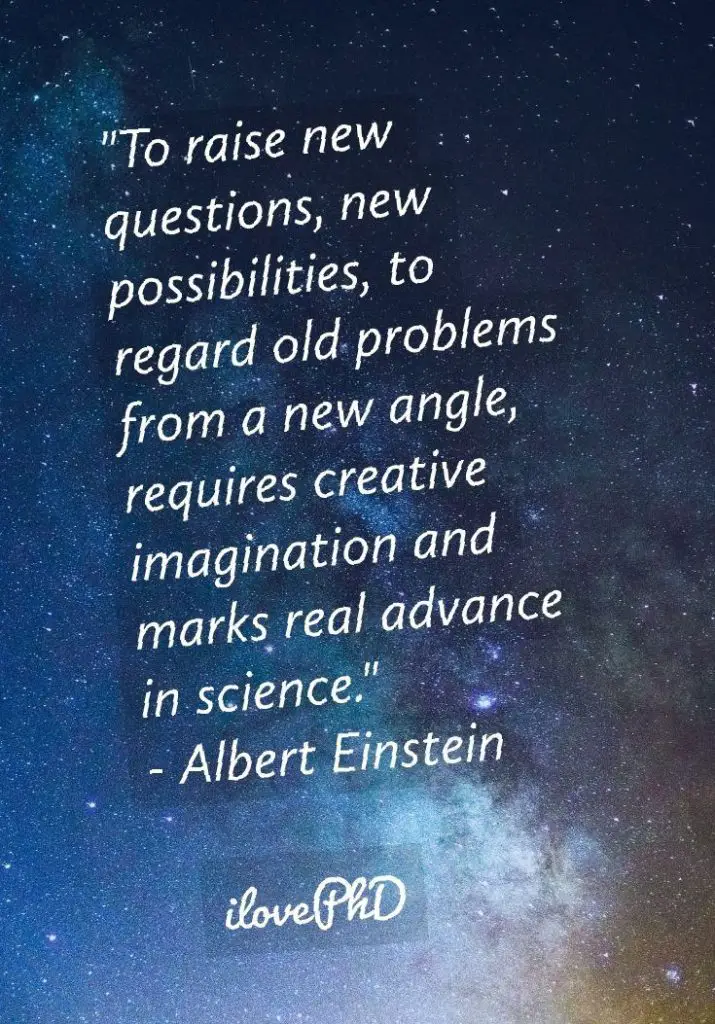
I am not a product of my circumstances. I am a product of my decisions.

Somewhere, something incredible is waiting to be known.
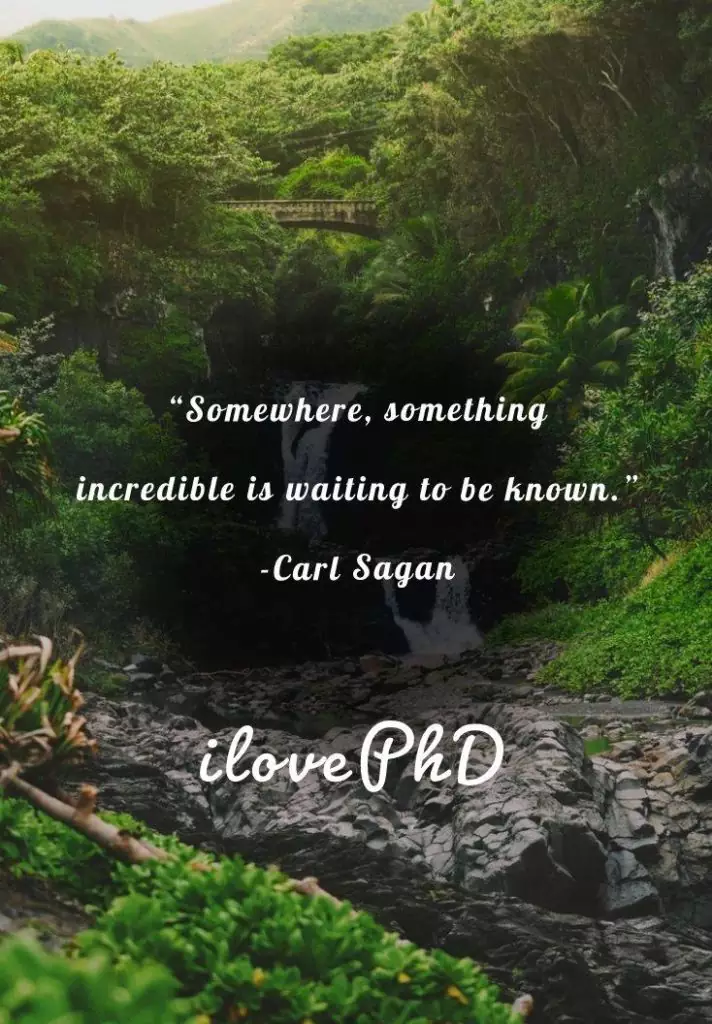
Push yourself, because no one else is going to do it for you!

Great things happen to those who don’t stop believing, trying, learning, and being grateful!

Give the world a reason to remember your name!

All i can control is myself and just keep having a positive attitude!

Anyone who has never made a mistake, has never tried anything new!

The most complicated skill is to be simple!

If you carry joy in your heart, you can heal any moment!

If you can’t explain it simply, you don’t understand it well enough!

Solve the problem, or leave the problem. Do not live with the problem.
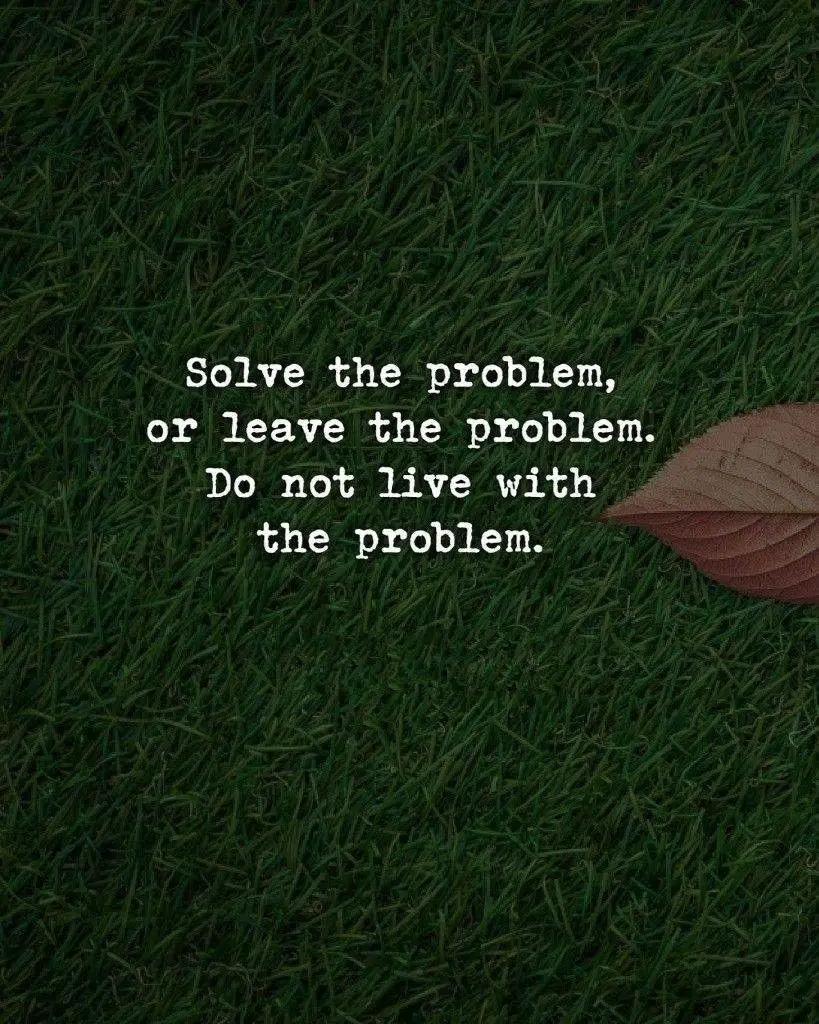
Who else got a PhD in imagining themselves in a situation that will never happen?

Do more things that make you forget to check your phone. -Motivational Quotes

The common facts of today are the products of yesterday’s research!

The only thing that separates two people are excuses.

What you think, you become. What you feel , you attract. What you imagine, you create.

The most beautiful thing you can wear is confidence!

If you want to find the secrets of the universe, think in terms of energy, frequency, and vibration!

Work like you don’t need the money, love like you’ve never been hurt and dance like no one is watching.

It’s important to learn and not to repeat the same!
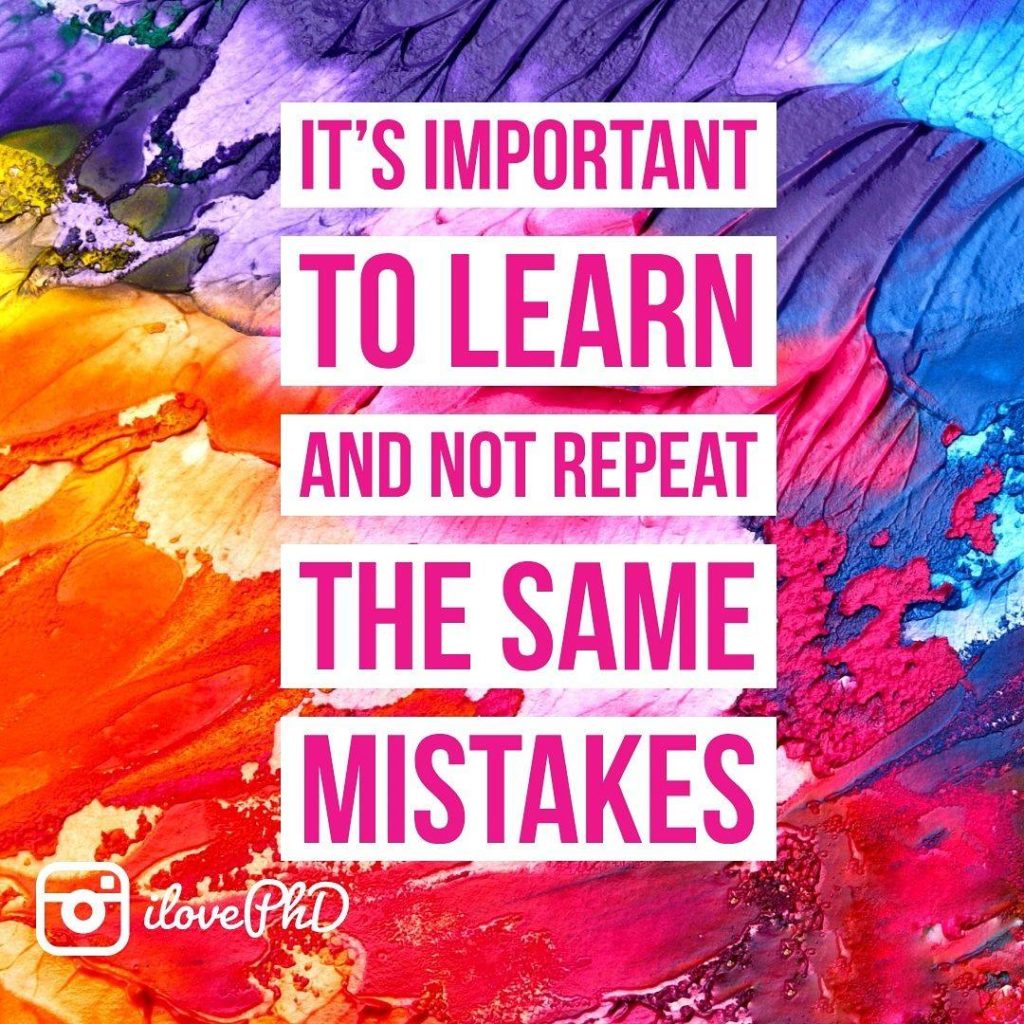
You can’t go back and change the beginning, but you can start where you are and change the ending!

At the end of the day, you are solely responsible for your success and your failure!

Procrastination is like a credit card. It’s a lot fun until you get the bill!
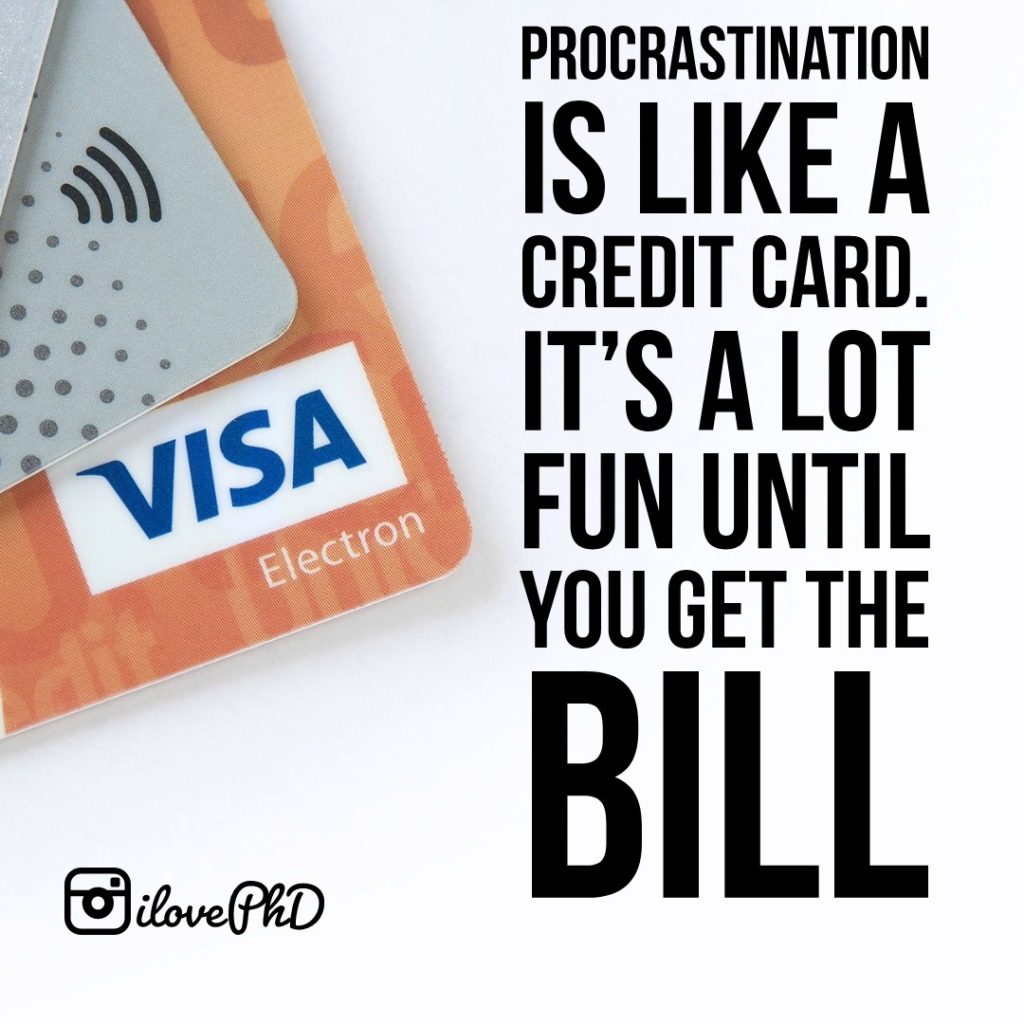
The true happiness is not in the destination, It lies in the journey!

Life is really simple, but we insist on making it complicated
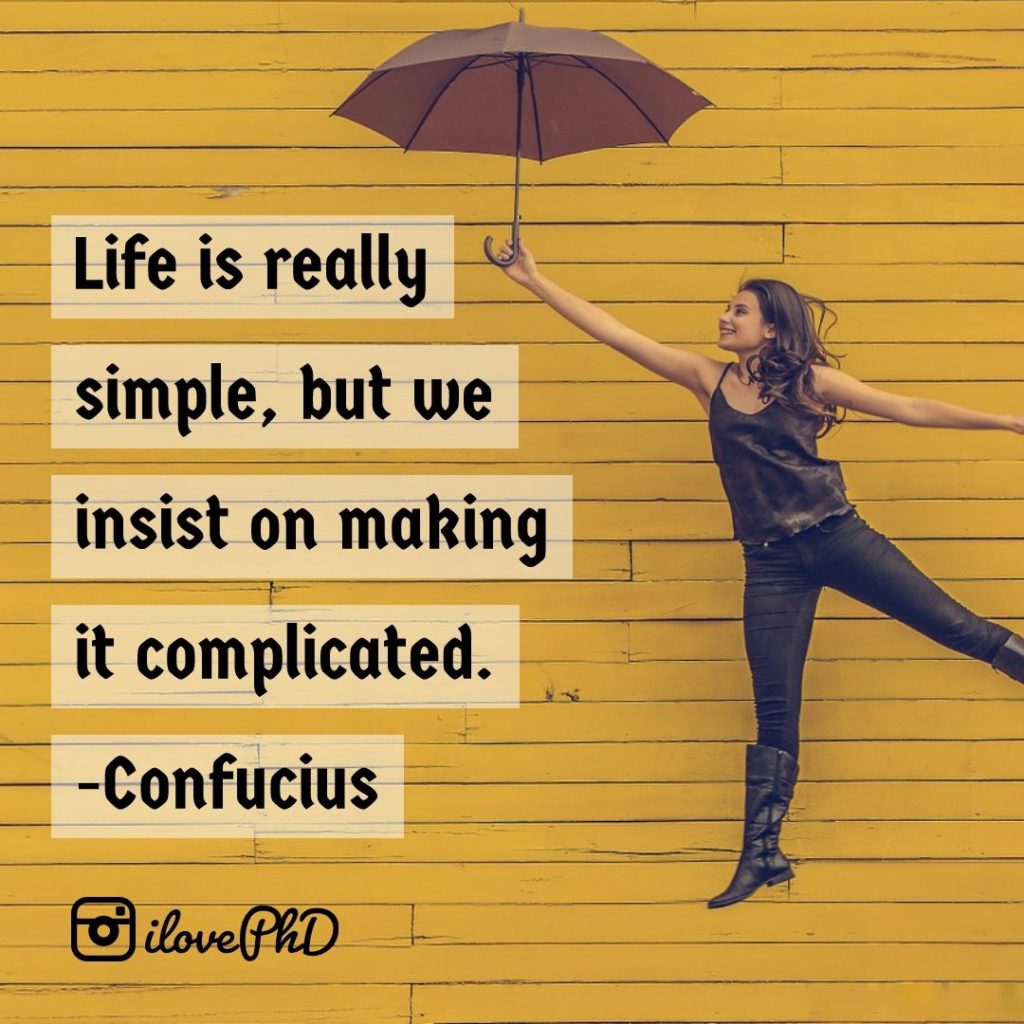
It’s never too late for a new beginning in your life!
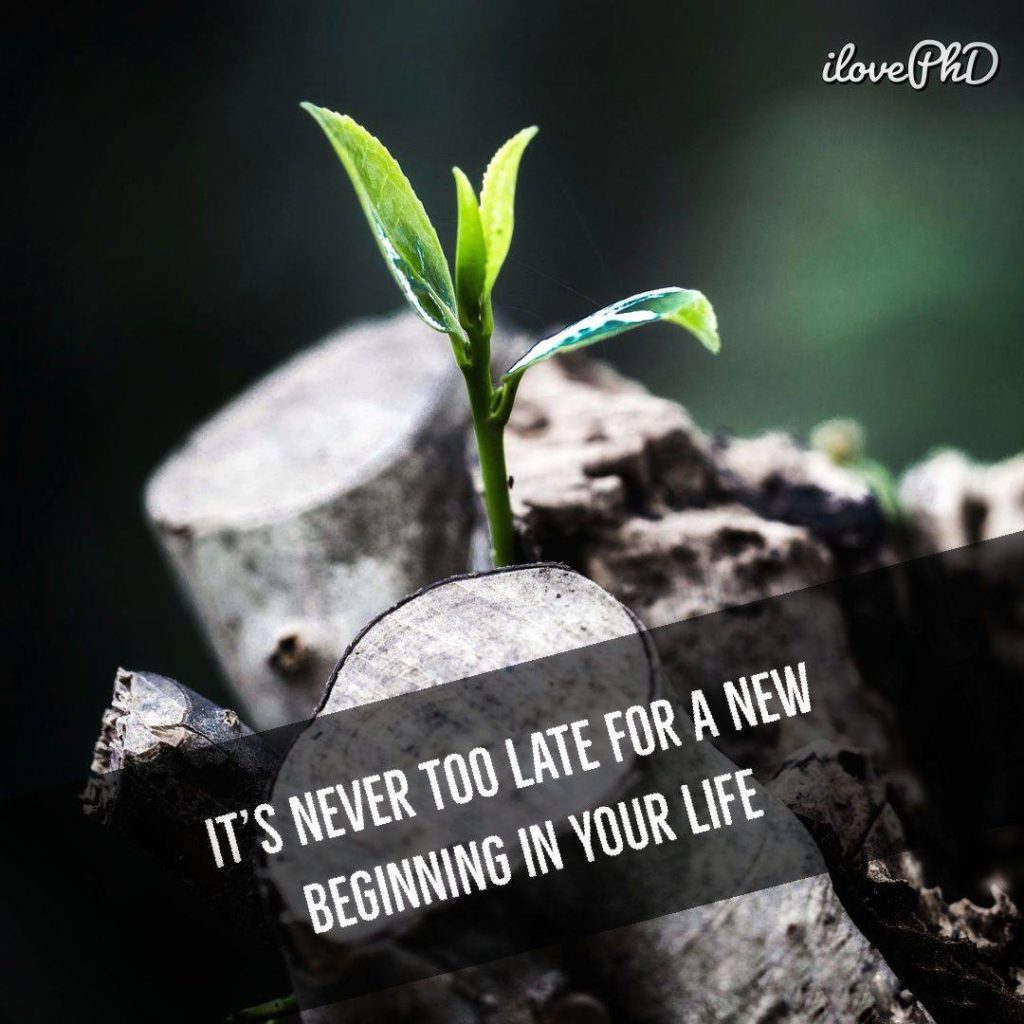
If reading is difficult. Read more!

I alone cannot change the world, but i can cast a stone across the water to create many ripples!

Some people dream of success while others wake up and work!

Don’t stop when you’re tired, stop when you’re done!

Start each day with a positive thought and a grateful heart! -Motivational Quotes

It’s better to focus on your subject rather than worrying about the background!

Success is simple. Do what’s right, the right way, at the right time.

Live each day as if your life had jous begun!

Arise, awake, and stop not till the goal is reached!

A smile is an inexpensive way to change your looks!

Collect moments! not things!

I changed my thinking. It changed my life!

If you want to be strong learn to fight alone!

Research is an organized method for keeping you reasonably dissatisfied with what you have.

Procarstination is the thief of dreams!

Words can inspire, thoughts can provoke, but only action truly brings you closer to your dreams!

Being alone has a power only few can handle!

Because of your smile, you make life more beautiful!

Do what is right! not what is easy!

Believe you can and you’re halfway there!

If you want to shine like a sun, first burn like a sun!
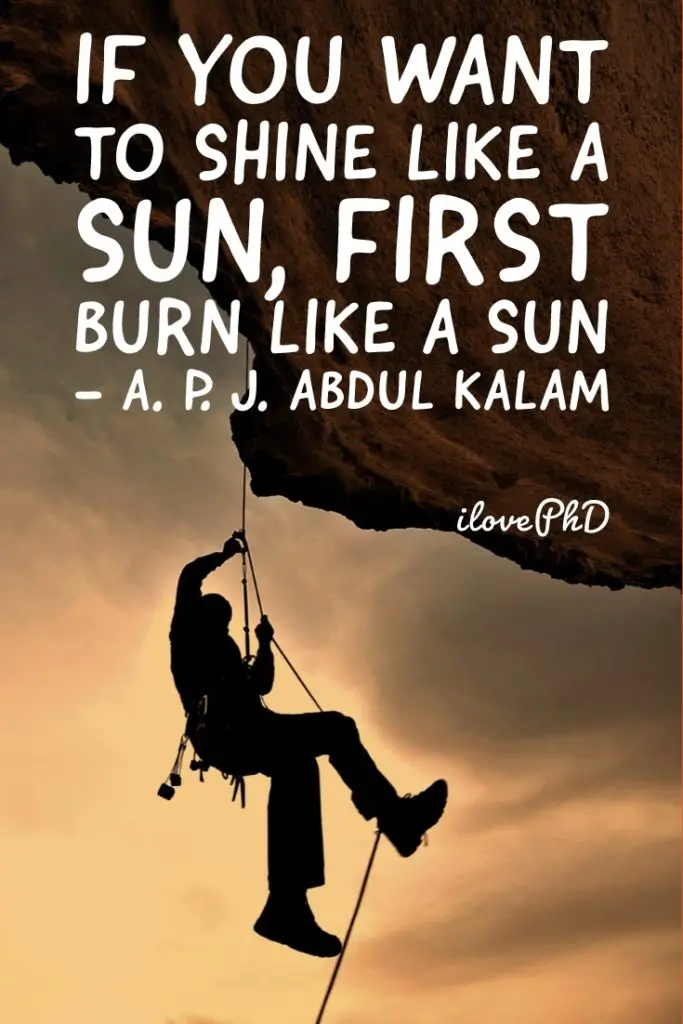
Where focus goes! energy flows!

One day the pain will make sense to your!

Motivational Quotes for the PhD Life | iLovePhD
- Confidence Qotes
- Success quotes
10 Types of Plagiarism – Every Academic Writer Should Know – Updated
The harsh reality: why revoked graduate degrees aren’t easily reclaimed, top 50 research institutions in india: nirf rankings 2024, leave a reply cancel reply, most popular, abstract template for research paper, top 35 scopus indexed journals in english literature, how to create graphical abstract, list of research topics in environmental engineering, indo-russian joint research call for proposals 2024, newly accepted scopus indexed journals june 2024, top 10 scopus indexed agronomy and crop science journals, best for you, 24 best online plagiarism checker free – 2024, what is phd, popular posts, popular category.
- POSTDOC 317
- Interesting 257
- Journals 235
- Fellowship 133
- Research Methodology 102
- All Scopus Indexed Journals 93
Mail Subscription

iLovePhD is a research education website to know updated research-related information. It helps researchers to find top journals for publishing research articles and get an easy manual for research tools. The main aim of this website is to help Ph.D. scholars who are working in various domains to get more valuable ideas to carry out their research. Learn the current groundbreaking research activities around the world, love the process of getting a Ph.D.
Contact us: [email protected]
Google News
Copyright © 2024 iLovePhD. All rights reserved
- Artificial intelligence
Member-only story
10 Encouraging Quotes For Ph.D. Students
Imbibe them like alcohol.
Prince Verma
ILLUMINATION
Who does not need extra motivation?
As a Ph.D. student, I need motivation from time to time. I need the motivation to keep going.
Sometimes I feel like not doing things. Especially in those moments, I like to read quotes and give myself some motivation.
Here are some of my favorites :
“Anyone starting out to research for a doctorate degree should remember that hours of self centered work has the ability to be the spark for others to progress. All research is potentially useful to open doors or show others that door does not lead anywhere useful. Advancements happen by building on others research.” ― Ian R. McAndrew, PhD “Research can be both lonely and rewarding. I would encourage research in areas that are of interest to the researcher and not that which is currently popular. Any research of note is not going to happen overnight and your interest will keep you dedicated.” ― Ian R. McAndrew, PhD “Self-education can be in a PhD level.” ― Tamerlan Kuzgov “PhD made me poorer, without money, but richer in thoughts.” ― Lailah Gifty Akita

Written by Prince Verma
Researcher, Runner and Aspiring Writer
Text to speech

How To Write A Dissertation Or Thesis
8 straightforward steps to craft an a-grade dissertation.
By: Derek Jansen (MBA) Expert Reviewed By: Dr Eunice Rautenbach | June 2020
Writing a dissertation or thesis is not a simple task. It takes time, energy and a lot of will power to get you across the finish line. It’s not easy – but it doesn’t necessarily need to be a painful process. If you understand the big-picture process of how to write a dissertation or thesis, your research journey will be a lot smoother.
In this post, I’m going to outline the big-picture process of how to write a high-quality dissertation or thesis, without losing your mind along the way. If you’re just starting your research, this post is perfect for you. Alternatively, if you’ve already submitted your proposal, this article which covers how to structure a dissertation might be more helpful.
How To Write A Dissertation: 8 Steps
- Clearly understand what a dissertation (or thesis) is
- Find a unique and valuable research topic
- Craft a convincing research proposal
- Write up a strong introduction chapter
- Review the existing literature and compile a literature review
- Design a rigorous research strategy and undertake your own research
- Present the findings of your research
- Draw a conclusion and discuss the implications

Step 1: Understand exactly what a dissertation is
This probably sounds like a no-brainer, but all too often, students come to us for help with their research and the underlying issue is that they don’t fully understand what a dissertation (or thesis) actually is.
So, what is a dissertation?
At its simplest, a dissertation or thesis is a formal piece of research , reflecting the standard research process . But what is the standard research process, you ask? The research process involves 4 key steps:
- Ask a very specific, well-articulated question (s) (your research topic)
- See what other researchers have said about it (if they’ve already answered it)
- If they haven’t answered it adequately, undertake your own data collection and analysis in a scientifically rigorous fashion
- Answer your original question(s), based on your analysis findings

In short, the research process is simply about asking and answering questions in a systematic fashion . This probably sounds pretty obvious, but people often think they’ve done “research”, when in fact what they have done is:
- Started with a vague, poorly articulated question
- Not taken the time to see what research has already been done regarding the question
- Collected data and opinions that support their gut and undertaken a flimsy analysis
- Drawn a shaky conclusion, based on that analysis
If you want to see the perfect example of this in action, look out for the next Facebook post where someone claims they’ve done “research”… All too often, people consider reading a few blog posts to constitute research. Its no surprise then that what they end up with is an opinion piece, not research. Okay, okay – I’ll climb off my soapbox now.
The key takeaway here is that a dissertation (or thesis) is a formal piece of research, reflecting the research process. It’s not an opinion piece , nor a place to push your agenda or try to convince someone of your position. Writing a good dissertation involves asking a question and taking a systematic, rigorous approach to answering it.
If you understand this and are comfortable leaving your opinions or preconceived ideas at the door, you’re already off to a good start!

Step 2: Find a unique, valuable research topic
As we saw, the first step of the research process is to ask a specific, well-articulated question. In other words, you need to find a research topic that asks a specific question or set of questions (these are called research questions ). Sounds easy enough, right? All you’ve got to do is identify a question or two and you’ve got a winning research topic. Well, not quite…
A good dissertation or thesis topic has a few important attributes. Specifically, a solid research topic should be:
Let’s take a closer look at these:
Attribute #1: Clear
Your research topic needs to be crystal clear about what you’re planning to research, what you want to know, and within what context. There shouldn’t be any ambiguity or vagueness about what you’ll research.
Here’s an example of a clearly articulated research topic:
An analysis of consumer-based factors influencing organisational trust in British low-cost online equity brokerage firms.
As you can see in the example, its crystal clear what will be analysed (factors impacting organisational trust), amongst who (consumers) and in what context (British low-cost equity brokerage firms, based online).
Need a helping hand?
Attribute #2: Unique
Your research should be asking a question(s) that hasn’t been asked before, or that hasn’t been asked in a specific context (for example, in a specific country or industry).
For example, sticking organisational trust topic above, it’s quite likely that organisational trust factors in the UK have been investigated before, but the context (online low-cost equity brokerages) could make this research unique. Therefore, the context makes this research original.
One caveat when using context as the basis for originality – you need to have a good reason to suspect that your findings in this context might be different from the existing research – otherwise, there’s no reason to warrant researching it.
Attribute #3: Important
Simply asking a unique or original question is not enough – the question needs to create value. In other words, successfully answering your research questions should provide some value to the field of research or the industry. You can’t research something just to satisfy your curiosity. It needs to make some form of contribution either to research or industry.
For example, researching the factors influencing consumer trust would create value by enabling businesses to tailor their operations and marketing to leverage factors that promote trust. In other words, it would have a clear benefit to industry.
So, how do you go about finding a unique and valuable research topic? We explain that in detail in this video post – How To Find A Research Topic . Yeah, we’ve got you covered 😊
Step 3: Write a convincing research proposal
Once you’ve pinned down a high-quality research topic, the next step is to convince your university to let you research it. No matter how awesome you think your topic is, it still needs to get the rubber stamp before you can move forward with your research. The research proposal is the tool you’ll use for this job.
So, what’s in a research proposal?
The main “job” of a research proposal is to convince your university, advisor or committee that your research topic is worthy of approval. But convince them of what? Well, this varies from university to university, but generally, they want to see that:
- You have a clearly articulated, unique and important topic (this might sound familiar…)
- You’ve done some initial reading of the existing literature relevant to your topic (i.e. a literature review)
- You have a provisional plan in terms of how you will collect data and analyse it (i.e. a methodology)
At the proposal stage, it’s (generally) not expected that you’ve extensively reviewed the existing literature , but you will need to show that you’ve done enough reading to identify a clear gap for original (unique) research. Similarly, they generally don’t expect that you have a rock-solid research methodology mapped out, but you should have an idea of whether you’ll be undertaking qualitative or quantitative analysis , and how you’ll collect your data (we’ll discuss this in more detail later).
Long story short – don’t stress about having every detail of your research meticulously thought out at the proposal stage – this will develop as you progress through your research. However, you do need to show that you’ve “done your homework” and that your research is worthy of approval .
So, how do you go about crafting a high-quality, convincing proposal? We cover that in detail in this video post – How To Write A Top-Class Research Proposal . We’ve also got a video walkthrough of two proposal examples here .
Step 4: Craft a strong introduction chapter
Once your proposal’s been approved, its time to get writing your actual dissertation or thesis! The good news is that if you put the time into crafting a high-quality proposal, you’ve already got a head start on your first three chapters – introduction, literature review and methodology – as you can use your proposal as the basis for these.
Handy sidenote – our free dissertation & thesis template is a great way to speed up your dissertation writing journey.
What’s the introduction chapter all about?
The purpose of the introduction chapter is to set the scene for your research (dare I say, to introduce it…) so that the reader understands what you’ll be researching and why it’s important. In other words, it covers the same ground as the research proposal in that it justifies your research topic.
What goes into the introduction chapter?
This can vary slightly between universities and degrees, but generally, the introduction chapter will include the following:
- A brief background to the study, explaining the overall area of research
- A problem statement , explaining what the problem is with the current state of research (in other words, where the knowledge gap exists)
- Your research questions – in other words, the specific questions your study will seek to answer (based on the knowledge gap)
- The significance of your study – in other words, why it’s important and how its findings will be useful in the world
As you can see, this all about explaining the “what” and the “why” of your research (as opposed to the “how”). So, your introduction chapter is basically the salesman of your study, “selling” your research to the first-time reader and (hopefully) getting them interested to read more.
How do I write the introduction chapter, you ask? We cover that in detail in this post .

Step 5: Undertake an in-depth literature review
As I mentioned earlier, you’ll need to do some initial review of the literature in Steps 2 and 3 to find your research gap and craft a convincing research proposal – but that’s just scratching the surface. Once you reach the literature review stage of your dissertation or thesis, you need to dig a lot deeper into the existing research and write up a comprehensive literature review chapter.
What’s the literature review all about?
There are two main stages in the literature review process:
Literature Review Step 1: Reading up
The first stage is for you to deep dive into the existing literature (journal articles, textbook chapters, industry reports, etc) to gain an in-depth understanding of the current state of research regarding your topic. While you don’t need to read every single article, you do need to ensure that you cover all literature that is related to your core research questions, and create a comprehensive catalogue of that literature , which you’ll use in the next step.
Reading and digesting all the relevant literature is a time consuming and intellectually demanding process. Many students underestimate just how much work goes into this step, so make sure that you allocate a good amount of time for this when planning out your research. Thankfully, there are ways to fast track the process – be sure to check out this article covering how to read journal articles quickly .

Literature Review Step 2: Writing up
Once you’ve worked through the literature and digested it all, you’ll need to write up your literature review chapter. Many students make the mistake of thinking that the literature review chapter is simply a summary of what other researchers have said. While this is partly true, a literature review is much more than just a summary. To pull off a good literature review chapter, you’ll need to achieve at least 3 things:
- You need to synthesise the existing research , not just summarise it. In other words, you need to show how different pieces of theory fit together, what’s agreed on by researchers, what’s not.
- You need to highlight a research gap that your research is going to fill. In other words, you’ve got to outline the problem so that your research topic can provide a solution.
- You need to use the existing research to inform your methodology and approach to your own research design. For example, you might use questions or Likert scales from previous studies in your your own survey design .
As you can see, a good literature review is more than just a summary of the published research. It’s the foundation on which your own research is built, so it deserves a lot of love and attention. Take the time to craft a comprehensive literature review with a suitable structure .
But, how do I actually write the literature review chapter, you ask? We cover that in detail in this video post .
Step 6: Carry out your own research
Once you’ve completed your literature review and have a sound understanding of the existing research, its time to develop your own research (finally!). You’ll design this research specifically so that you can find the answers to your unique research question.
There are two steps here – designing your research strategy and executing on it:
1 – Design your research strategy
The first step is to design your research strategy and craft a methodology chapter . I won’t get into the technicalities of the methodology chapter here, but in simple terms, this chapter is about explaining the “how” of your research. If you recall, the introduction and literature review chapters discussed the “what” and the “why”, so it makes sense that the next point to cover is the “how” –that’s what the methodology chapter is all about.
In this section, you’ll need to make firm decisions about your research design. This includes things like:
- Your research philosophy (e.g. positivism or interpretivism )
- Your overall methodology (e.g. qualitative , quantitative or mixed methods)
- Your data collection strategy (e.g. interviews , focus groups, surveys)
- Your data analysis strategy (e.g. content analysis , correlation analysis, regression)
If these words have got your head spinning, don’t worry! We’ll explain these in plain language in other posts. It’s not essential that you understand the intricacies of research design (yet!). The key takeaway here is that you’ll need to make decisions about how you’ll design your own research, and you’ll need to describe (and justify) your decisions in your methodology chapter.
2 – Execute: Collect and analyse your data
Once you’ve worked out your research design, you’ll put it into action and start collecting your data. This might mean undertaking interviews, hosting an online survey or any other data collection method. Data collection can take quite a bit of time (especially if you host in-person interviews), so be sure to factor sufficient time into your project plan for this. Oftentimes, things don’t go 100% to plan (for example, you don’t get as many survey responses as you hoped for), so bake a little extra time into your budget here.
Once you’ve collected your data, you’ll need to do some data preparation before you can sink your teeth into the analysis. For example:
- If you carry out interviews or focus groups, you’ll need to transcribe your audio data to text (i.e. a Word document).
- If you collect quantitative survey data, you’ll need to clean up your data and get it into the right format for whichever analysis software you use (for example, SPSS, R or STATA).
Once you’ve completed your data prep, you’ll undertake your analysis, using the techniques that you described in your methodology. Depending on what you find in your analysis, you might also do some additional forms of analysis that you hadn’t planned for. For example, you might see something in the data that raises new questions or that requires clarification with further analysis.
The type(s) of analysis that you’ll use depend entirely on the nature of your research and your research questions. For example:
- If your research if exploratory in nature, you’ll often use qualitative analysis techniques .
- If your research is confirmatory in nature, you’ll often use quantitative analysis techniques
- If your research involves a mix of both, you might use a mixed methods approach
Again, if these words have got your head spinning, don’t worry! We’ll explain these concepts and techniques in other posts. The key takeaway is simply that there’s no “one size fits all” for research design and methodology – it all depends on your topic, your research questions and your data. So, don’t be surprised if your study colleagues take a completely different approach to yours.

Step 7: Present your findings
Once you’ve completed your analysis, it’s time to present your findings (finally!). In a dissertation or thesis, you’ll typically present your findings in two chapters – the results chapter and the discussion chapter .
What’s the difference between the results chapter and the discussion chapter?
While these two chapters are similar, the results chapter generally just presents the processed data neatly and clearly without interpretation, while the discussion chapter explains the story the data are telling – in other words, it provides your interpretation of the results.
For example, if you were researching the factors that influence consumer trust, you might have used a quantitative approach to identify the relationship between potential factors (e.g. perceived integrity and competence of the organisation) and consumer trust. In this case:
- Your results chapter would just present the results of the statistical tests. For example, correlation results or differences between groups. In other words, the processed numbers.
- Your discussion chapter would explain what the numbers mean in relation to your research question(s). For example, Factor 1 has a weak relationship with consumer trust, while Factor 2 has a strong relationship.
Depending on the university and degree, these two chapters (results and discussion) are sometimes merged into one , so be sure to check with your institution what their preference is. Regardless of the chapter structure, this section is about presenting the findings of your research in a clear, easy to understand fashion.
Importantly, your discussion here needs to link back to your research questions (which you outlined in the introduction or literature review chapter). In other words, it needs to answer the key questions you asked (or at least attempt to answer them).
For example, if we look at the sample research topic:
In this case, the discussion section would clearly outline which factors seem to have a noteworthy influence on organisational trust. By doing so, they are answering the overarching question and fulfilling the purpose of the research .

For more information about the results chapter , check out this post for qualitative studies and this post for quantitative studies .
Step 8: The Final Step Draw a conclusion and discuss the implications
Last but not least, you’ll need to wrap up your research with the conclusion chapter . In this chapter, you’ll bring your research full circle by highlighting the key findings of your study and explaining what the implications of these findings are.
What exactly are key findings? The key findings are those findings which directly relate to your original research questions and overall research objectives (which you discussed in your introduction chapter). The implications, on the other hand, explain what your findings mean for industry, or for research in your area.
Sticking with the consumer trust topic example, the conclusion might look something like this:
Key findings
This study set out to identify which factors influence consumer-based trust in British low-cost online equity brokerage firms. The results suggest that the following factors have a large impact on consumer trust:
While the following factors have a very limited impact on consumer trust:
Notably, within the 25-30 age groups, Factors E had a noticeably larger impact, which may be explained by…
Implications
The findings having noteworthy implications for British low-cost online equity brokers. Specifically:
The large impact of Factors X and Y implies that brokers need to consider….
The limited impact of Factor E implies that brokers need to…
As you can see, the conclusion chapter is basically explaining the “what” (what your study found) and the “so what?” (what the findings mean for the industry or research). This brings the study full circle and closes off the document.

Let’s recap – how to write a dissertation or thesis
You’re still with me? Impressive! I know that this post was a long one, but hopefully you’ve learnt a thing or two about how to write a dissertation or thesis, and are now better equipped to start your own research.
To recap, the 8 steps to writing a quality dissertation (or thesis) are as follows:
- Understand what a dissertation (or thesis) is – a research project that follows the research process.
- Find a unique (original) and important research topic
- Craft a convincing dissertation or thesis research proposal
- Write a clear, compelling introduction chapter
- Undertake a thorough review of the existing research and write up a literature review
- Undertake your own research
- Present and interpret your findings
Once you’ve wrapped up the core chapters, all that’s typically left is the abstract , reference list and appendices. As always, be sure to check with your university if they have any additional requirements in terms of structure or content.

Psst... there’s more!
This post was based on one of our popular Research Bootcamps . If you're working on a research project, you'll definitely want to check this out ...
20 Comments
thankfull >>>this is very useful
Thank you, it was really helpful
unquestionably, this amazing simplified way of teaching. Really , I couldn’t find in the literature words that fully explicit my great thanks to you. However, I could only say thanks a-lot.
Great to hear that – thanks for the feedback. Good luck writing your dissertation/thesis.
This is the most comprehensive explanation of how to write a dissertation. Many thanks for sharing it free of charge.
Very rich presentation. Thank you
Thanks Derek Jansen|GRADCOACH, I find it very useful guide to arrange my activities and proceed to research!
Thank you so much for such a marvelous teaching .I am so convinced that am going to write a comprehensive and a distinct masters dissertation
It is an amazing comprehensive explanation
This was straightforward. Thank you!
I can say that your explanations are simple and enlightening – understanding what you have done here is easy for me. Could you write more about the different types of research methods specific to the three methodologies: quan, qual and MM. I look forward to interacting with this website more in the future.
Thanks for the feedback and suggestions 🙂
Hello, your write ups is quite educative. However, l have challenges in going about my research questions which is below; *Building the enablers of organisational growth through effective governance and purposeful leadership.*
Very educating.
Just listening to the name of the dissertation makes the student nervous. As writing a top-quality dissertation is a difficult task as it is a lengthy topic, requires a lot of research and understanding and is usually around 10,000 to 15000 words. Sometimes due to studies, unbalanced workload or lack of research and writing skill students look for dissertation submission from professional writers.
Thank you 💕😊 very much. I was confused but your comprehensive explanation has cleared my doubts of ever presenting a good thesis. Thank you.
thank you so much, that was so useful
Hi. Where is the excel spread sheet ark?
could you please help me look at your thesis paper to enable me to do the portion that has to do with the specification
my topic is “the impact of domestic revenue mobilization.
Submit a Comment Cancel reply
Your email address will not be published. Required fields are marked *
Save my name, email, and website in this browser for the next time I comment.
- Print Friendly
- Deutschland
- United Kingdom

- Revisión en inglés
- Relecture en anglais
- Revisão em inglês
Manuscript Editing
- Research Paper Editing
- Lektorat Doktorarbeit
- Dissertation Proofreading
- Englisches Lektorat
- Journal Manuscript Editing
- Scientific Manuscript Editing Services
- Book Manuscript Editing
- PhD Thesis Proofreading Services
- Wissenschaftslektorat
- Korektura anglického textu
- Akademisches Lektorat
- Journal Article Editing
- Manuscript Editing Services
PhD Thesis Editing
- Medical Editing Sciences
- Proofreading Rates UK
- Medical Proofreading
- PhD Proofreading
- Academic Proofreading
- PhD Proofreaders
- Best Dissertation Proofreaders
- Masters Dissertation Proofreading
- Proofreading PhD Thesis Price
- PhD Dissertation Editing
- Lektorat Englisch Preise
- Lektorieren Englisch
- Wissenschaftliches Lektorat
- Thesis Proofreading Services
- PhD Thesis Proofreading
- Proofreading Thesis Cost
- Proofreading Thesis
- Thesis Editing Services
- Professional Thesis Editing
- PhD Thesis Editing Services
- Thesis Editing Cost
- Dissertation Proofreading Services
- Proofreading Dissertation
PhD Dissertation Proofreading
- Dissertation Proofreading Cost
- Dissertation Proofreader
- Correção de Artigos Científicos
- Correção de Trabalhos Academicos
- Serviços de Correção de Inglês
- Correção de Dissertação
- Correção de Textos Precos
- Revision en Ingles
- Revision de Textos en Ingles
- Revision de Tesis
- Revision Medica en Ingles
- Revision de Tesis Precio
- Revisão de Artigos Científicos
- Revisão de Trabalhos Academicos
- Serviços de Revisão de Inglês
- Revisão de Dissertação
- Revisão de Textos Precos
- Corrección de Textos en Ingles
- Corrección de Tesis
- Corrección de Tesis Precio
- Corrección Medica en Ingles
- Corrector ingles
- Choosing the right Journal
- Journal Editor’s Feedback
- Dealing with Rejection
- Quantitative Research Examples
- Number of scientific papers published per year
- Acknowledgements Example
- ISO, ANSI, CFR & Other
- Types of Peer Review
- Withdrawing a Paper
- What is a good h-index
- Appendix paper
- Cover Letter Templates
- Writing an Article
- How To Write the Findings
- Abbreviations: ‘Ibid.’ & ‘Id.’
- Sample letter to editor for publication
- Tables and figures in research paper
- Journal Metrics
- Revision Process of Journal Publishing
- JOURNAL GUIDELINES
Select Page

Direct Quotations in Theses – Presentation, Integration and Accuracy
Posted by Rene Tetzner | Nov 11, 2021 | PhD Success | 0 |

Chapter 8: Direct Quotations: Presentation, Integration and Accuracy
Not all doctoral candidates will make use of direct quotation in their theses, but many theses will include one or a few quoted passages, while others will feature a wide variety of quoted text and/or speech. The idea behind using the exact words of another person (or of other people in the case of sources with more than one author) is that those words contribute to your argument: they may support or contradict your methods, results or conclusions; they may be selected from a text or texts that your thesis analyses in detail; they may be exemplary, pithy or perfect expressions of ideas you introduce and discuss. Whatever your reasons for quoting the words of others in your own writing may be, you need to quote them accurately, remembering that ‘a direct quotation presents the exact words spoken on a particular occasion or written in a particular place’ (Ritter, 2005, Section 9.1). It is also essential that you observe with precision the appropriate scholarly techniques for quoting sources and that you make it absolutely clear to your readers how you are using direct quotations by introducing them effectively and discussing their significance in relation to your argument. In most cases, it is not enough simply to quote a passage and assume that your readers (and examiners) will know why you have quoted it: you need to let them know what you expect them to read or understand in the borrowed words. Any quotations you use should be integrated correctly into the syntax of your own prose as well, and all direct quotations must be acknowledged with precise references to the sources from which they have been taken. If your university or department has provided you with guidelines, they may offer instructions on the quotation practices appropriate for your thesis, in which case those instructions should be prioritised and used in conjunction with the more general advice provided in this chapter. The sections that follow focus on the scholarly practices and formats associated with quoting sources in acceptable ways in formal English prose, beginning with the most practical aspects of presenting quoted material – namely, laying it out on the page and providing the necessary references to the sources quoted.
8.1 Formatting and Acknowledging Quotations
There are two main ways to present quoted material in scholarly prose: it can be formatted as run-on or run-in quotations that are embedded in the main text, or it can be laid out as displayed or block quotations that are set off from the text. Short prose quotations, particularly those of less than a single sentence, are generally embedded, which means that they become a part of your own sentences and paragraphs. They therefore appear in the same font size as the surrounding text and are enclosed in quotation marks (The results of my investigation did not show ‘the negative effect of poor lighting’ (Bennett, 2007, p.197) revealed in an earlier study of the problem). Single quotation marks (‘ ’), as I use in this book, or double quotation marks (“ ”) can be used, but the same type must be used to mark all quotations in a thesis. Traditionally, single quotation marks tended to be used in British English and double quotation marks in American English, but this distinction is no longer as consistent or widespread as it once was. If the university or department guidelines you are using give any indication of the kind of quotation marks desired, you should follow that advice; otherwise, you may want to prefer one type of mark over the other based on whether British or American English is required or used, or you may want to follow your own preferences.

Whichever type of quotation mark is adopted for embedded quotations, the opposite type will be needed to enclose any quotations that appear within those quotations, as double quotation marks are used to enclose the word ‘novelty’ (a quote within a quote) in the following sentence: The results of my investigation did not show ‘the negative effect of poor lighting’ that surprised Bennett ‘due to its “novelty” in trials of this kind’ (2007, p.197). Were the main quotation enclosed in double quotation marks instead, the word ‘novelty’ would be marked by single quotation marks. In both cases the pattern of alternation continues if there is, by chance, a quote within a quote within a quote: single marks for the main quote with double marks enclosing the quote within it and a return to single marks to enclose the quote within that, or double marks for the main quote with single marks enclosing the quote within it and a return to double marks to enclose the quote within that. The two types could theoretically alternate indefinitely to provide many layers of quotation, but it is rare that more than three layers are used. Since errors often creep into the layered use of quotation marks, quotations featuring them require especially careful checking to ensure that each opening quotation mark has a matching and appropriately placed closing mark.

Longer prose quotations are usually displayed or set off as block quotations, but exactly what length quotations should be to justify such treatment varies considerably from style to style: quotations of forty words or more are displayed as block quotations in some styles, while in others a quotation should be longer (100 words or more in some cases) to receive such treatment. There is, then, no firm rule based on the length of the passage, though if university or department guidelines indicate that quotations over a particular word count should be displayed, do observe them. Alternate criteria can be used, however, to determine the format of quotations in the absence of such instructions. You might, for example, choose to display a short quotation that is central to your argument or to embed a long quotation in order to comment on parts of it in more detail; you might decide to display a series of quotations of varying length in order to highlight them and facilitate comparison, or to embed the same series of quotations to make the text more readable; or you might embed quotations that are central to the argument of your thesis, but display those cited as examples or illustrations. It is therefore essential to determine exactly what criteria you will use to make this distinction before formatting quotations and then to stick to those criteria as consistently as possible, making exceptions only when they serve your argument or your reasons for quoting in the first place.

When quotations are displayed, they are not enclosed in quotation marks, but they should start on a new line and they often feature a slightly smaller font size than that used in the main text of a document (in this book, for instance, I use a 12-point font for the main text, but an 11-point font for block quotations). The line spacing around and within a block quotation may also differ from that used in the main text of a thesis, and the same may be the case with indentation and justification, with all of these differences enabling the quotations to stand out effectively from your own prose. If your university or department provides specific instructions for laying out block quotations, they should be followed, but, in most cases, indentation (left or both left and right) and a smaller font size will suffice for marking displayed quotations. The following passage shows a simple but effective layout for prose quotations:
His manuscript project underwent various changes as it proceeded, however, and among these developments was the transformation of this meditation designed for readers into twin ‘meditational dramas’ that enact that reflective experience and could well have been performed, in the author’s priory perhaps, or the hall of a local gentleman, or the streets of a nearby Yorkshire community.
(Olson, 2012, p.338)
Since quotation marks are not required around the entire quotation, single quotation marks are used for quotations within the quotation, which results in a different alternation pattern than that for embedded quotations: single marks for quotations within the block quotation, double marks for quotations within those quotations and so on, with the reverse the case if double quotation marks are the predominant marks used in the thesis (double marks for quotations within block quotations, single marks for quotations within those quotations and so on).
When quoting more than a single line of poetry or any text (whether long or short) for which retaining the exact format of the original is important, such as lists, letters, interviews and passages from plays, and when quoting prose passages of more than a single paragraph, displaying the quotation is in almost all cases a much better choice than embedding it. Here, for instance, is a passage of the Middle English poem Piers Plowman (B-Text) formatted as a block quotation:
For if heuene be on þis erþe, and ese to any soule,
It is in cloistre or in scole, by manye skiles I fynde.
For in cloistre comeþ no man to carpe ne to fiȝte
But al is buxomnesse þere and bokes, to rede and to lerne.
(Kane & Donaldson, 1975, X.305–308)
Notice that the indentation at the left is set so that the longest line is more or less centred on the page, although each line starts in the same position (not centre justified), and the passage is formatted to represent as faithfully as possible the layout of the poem in the source text. If the poem’s indentation varies in the source, this should be represented by extra indentation in the format of the block quotation. If any line is too long to fit on a single line in the block quotation and thus runs over onto the next line, the runover line should be indented a space or two beyond the usual indentation to distinguish it from new lines. If any quotations appear within the quoted lines, they should be enclosed in quotation marks exactly as they are in prose block quotations. Finally, if the quotation begins part way through a line, a space representing the length of the omitted material should be inserted before the quotation:
comeþ no man to carpe ne to fiȝte
(Kane & Donaldson, 1975, X.307–308)
The layout of a letter or list, the dialogue of a play including speaker tags and stage directions, the exchange during an interview and the breaks between paragraphs in a long prose quotation can be reproduced in similar ways in the formatting of a block quotation, as is the case in this example:
INTERVIEWER: Were you able to move easily when connected to the equipment?
RESPONDENT 1: Yes, most of the time, but a few of the exercises were more difficult.
INTERVIEWER: Do you remember which ones presented movement problems?
If two or more block quotations appear one after the other, make sure that the spacing between them leaves no ambiguity about where one quotation ends and the next begins. It should also be made clear whether the paragraph that precedes a block quotation continues after the quotation or not, so if a new paragraph begins immediately after displayed material, indentation and/or spacing should indicate that this is the case.
Although embedding such specifically formatted quotations should be avoided if at all possible, there are instances in which more than one line of poetry, more than one paragraph of prose or the parts of a letter, list or play will need to be presented as run-on quotations within your own sentences and paragraphs. In such cases, the original formatting should be represented as accurately as possible while maintaining effective sentence and paragraph structure and a tidy page layout. For lines of poetry, for instance, the font should be the same size as the main text, capitalisation should be retained and line breaks should be marked by either a forward slash or a vertical line (see Section 5.6.5) with a space on either side, as in the following example: ‘For if heuene be on þis erþe, and ese to any soule, | It is in cloistre or in scole, by manye skiles I fynde. | For in cloistre comeþ no man to carpe ne to fiȝte | But al is buxomnesse þere and bokes, to rede and to lerne’ (Kane & Donaldson, 1975, X.305–308). When a quotation of more than one paragraph is embedded, quotation marks should appear at the beginning of the quotation and at the beginning of each new paragraph, but only at the end of the final paragraph (or the end of the quotation if the final paragraph is not quoted in its entirety). The same approach should be used when quoting dialogue in which a single speaker’s words extend over more than one paragraph.
Representing lists, the dialogue in plays (along with stage directions) and the questions and answers in interviews as embedded quotations will be a little more challenging, and it is always best to format them as block quotations if possible, but short passages of this kind can be successful (if not ideal) when careful and creative formatting is used: ‘INTERVIEWER: Were you able to move easily when connected to the equipment? RESPONDENT 1: Yes, most of the time, but a few of the exercises were more difficult. INTERVIEWER: Do you remember which ones presented movement problems?’ I have not used quotation marks around the actual speech of the two parties in this example, which is an acceptable approach for such dialogue (when quoting a play as well) whether it is embedded or displayed, but the additional quotation marks can certainly be added around those bits of direct speech to avoid confusion when using an embedded format: ‘WILL: “Where did she go?” ROB, looking from side to side : “She was just here.” WILL, looking up and pointing : “She’s there.”’ Embedding quotations of this kind may be particularly necessary in footnotes and endnotes, because the font used in notes is usually smaller than that in the main text, which means that block quotations become smaller still, so even long quotations with complicated formatting are often embedded in notes.
When the quotation is displayed, the same source information is required, but the parenthetical reference is positioned a little differently: after the closing punctuation of a block quotation, for instance, and usually oriented to the right on the line directly below the quotation, as it appears in the block quotations from Olson and Piers Plowman that I provided above. If there is room for the reference on the final line of the quotation, that is usually an acceptable position as well, and certainly it is on that line immediately after the closing punctuation of the block quotation that a note number or numerical reference would appear instead if that is the system you are using:
But al is buxomnesse þere and bokes, to rede and to lerne. 1
As with embedded quotations, an explanation of your referencing practices can be offered in the first relevant note to facilitate shorter references and avoid numerous notes if the same text is quoted frequently, and, as a general rule, regardless of which quotation format or system of referencing you use, subsequent references to the same text can be shortened to provide only the information absolutely necessary for the reader to locate the quotation accurately. If, for example, you are discussing Langland for several paragraphs in which you quote repeatedly from his poem, it is not necessary to identify the author, poem, editors and publication date with each quotation unless it is unclear which text is being cited; only if a different author or text, or perhaps a different edition or version of the poem is quoted in the midst of the discussion would a full reference be required to reorient the reader. Shortening references to a bare minimum is noted as desirable in most style guides, but do be sure that you provide enough information in each instance for your readers to identify and locate your quotations, remembering that offering too much information is preferable to offering too little.
Why PhD Success?
To Graduate Successfully
This article is part of a book called "PhD Success" which focuses on the writing process of a phd thesis, with its aim being to provide sound practices and principles for reporting and formatting in text the methods, results and discussion of even the most innovative and unique research in ways that are clear, correct, professional and persuasive.

The assumption of the book is that the doctoral candidate reading it is both eager to write and more than capable of doing so, but nonetheless requires information and guidance on exactly what he or she should be writing and how best to approach the task. The basic components of a doctoral thesis are outlined and described, as are the elements of complete and accurate scholarly references, and detailed descriptions of writing practices are clarified through the use of numerous examples.

The basic components of a doctoral thesis are outlined and described, as are the elements of complete and accurate scholarly references, and detailed descriptions of writing practices are clarified through the use of numerous examples. PhD Success provides guidance for students familiar with English and the procedures of English universities, but it also acknowledges that many theses in the English language are now written by candidates whose first language is not English, so it carefully explains the scholarly styles, conventions and standards expected of a successful doctoral thesis in the English language.

Individual chapters of this book address reflective and critical writing early in the thesis process; working successfully with thesis supervisors and benefiting from commentary and criticism; drafting and revising effective thesis chapters and developing an academic or scientific argument; writing and formatting a thesis in clear and correct scholarly English; citing, quoting and documenting sources thoroughly and accurately; and preparing for and excelling in thesis meetings and examinations.

Completing a doctoral thesis successfully requires long and penetrating thought, intellectual rigour and creativity, original research and sound methods (whether established or innovative), precision in recording detail and a wide-ranging thoroughness, as much perseverance and mental toughness as insight and brilliance, and, no matter how many helpful writing guides are consulted, a great deal of hard work over a significant period of time. Writing a thesis can be an enjoyable as well as a challenging experience, however, and even if it is not always so, the personal and professional rewards of achieving such an enormous goal are considerable, as all doctoral candidates no doubt realise, and will last a great deal longer than any problems that may be encountered during the process.
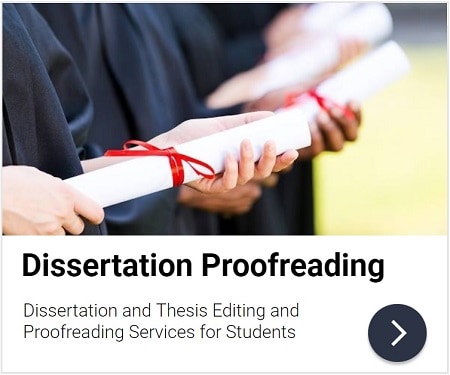
Interested in Proofreading your PhD Thesis? Get in Touch with us
If you are interested in proofreading your PhD thesis or dissertation, please explore our expert dissertation proofreading services.

Rene Tetzner
Rene Tetzner's blog posts dedicated to academic writing. Although the focus is on How To Write a Doctoral Thesis, many other important aspects of research-based writing, editing and publishing are addressed in helpful detail.
Related Posts

PhD Success – How To Write a Doctoral Thesis
October 1, 2021

Table of Contents – PhD Success
October 2, 2021

The Essential – Preliminary Matter
October 3, 2021

The Main Body of the Thesis
October 4, 2021
5 inspiring PhD thesis acknowledgement examples

Crafting a PhD thesis acknowledgement can be a challenging task, but it can also be an enjoyable one. There are no strict rules or guidelines to follow, allowing for creative freedom. However, seeking inspiration from sample acknowledgements can greatly assist in initiating your own writing process. Here are five PhD thesis acknowledgement examples!
PhD thesis acknowledgement example 1
First and foremost, I would like to thank my PhD supervisors, Prof. Xiu Ling and Prof. Frederic Semoas. Their constant support, guidance, and encouragement have been invaluable throughout the entire process. From the initial stages of refining my research proposal to the final submission of my thesis, their unwavering presence and wealth of wisdom have been instrumental in shaping my academic growth. I highly valued the biweekly meetings we held, which not only served as crucial checkpoints to keep me on track academically, but also provided me with plenty of encouragement. I am profoundly grateful for the immeasurable contributions they made to my development.
Among the most memorable highlights of my PhD journey was the opportunity to participate in the Applied Chemistry Summer School in Belfast. This enriching experience would not have been possible without the dedication and expertise of Dr. Simone and Dr. Erek. I am deeply grateful for the knowledge, connections, and friendships that were forged during that time.
PhD thesis acknowledgement example 2
It takes a village to raise a child” is a well-known proverb, and I strongly believe that completing a PhD also requires the support of a village. Therefore, I would like to express my sincere gratitude to the people who played significant roles in my PhD journey.
Furthermore, I want to thank all the interviewees who generously shared their thoughts and life stories for my research. Without your willingness to participate, my thesis would not have been possible.
PhD thesis acknowledgement example 3
When I embarked on my PhD journey five years ago, little did I know the profound experiences that lay ahead. Fulfilling my long-held dream of pursuing a PhD, time seemed to pass swiftly as I immersed myself in the world of academia. Transitioning from several years in professional practice back to the university environment was both daunting and exhilarating.
During my third and fourth years, I had the privilege of working as a teaching assistant for Prof. Susan Meyers. This role introduced me to the immensely fulfilling world of teaching, from which I gained invaluable knowledge and insights. Prof. Meyers provided exceptional guidance and unwavering support throughout my teaching endeavors.
My greatest aspiration is that my research proves beneficial and contributes to a better understanding of earthquakes. The drive to advance knowledge in this field continues to fuel my motivation and determination. I am deeply grateful to all the individuals mentioned, as none of this would have been possible without their guidance and encouragement. I am excited to see what the future holds.
PhD thesis acknowledgement example 4
Throughout my PhD journey, I have been fortunate to explore various places and experiences. Moving to Chicago, I had the privilege of joining an exceptional literature department, surrounded by individuals who share a deep passion for reading. Relocating to a new city on my own was challenging, but fate led me to forge a wonderful friendship with my flat mate, Loreen. Loreen, I am grateful for your companionship and support from the very beginning of my PhD.
Participating in a three-minute research pitch competition not only pushed me beyond my comfort zone but also introduced me to an incredible partner, Joshua. It is remarkable how life leads us to unexpected places and introduces us to remarkable people when we least expect it.
Grandma and Grandpa, you made immense sacrifices and worked tirelessly to provide a better life for your children and grandchildren. Look how far we have come! Your dedication and resilience continue to inspire me as I reflect on my achievements.
PhD thesis acknowledgement example 5
To Katie, Felicitas, Aron, Xime, and Andy – you are the best PhD crew in the entire department. Together, we have navigated the challenges and celebrated the triumphs, and I am grateful to have had you by my side.
Lastly, I want to express my heartfelt appreciation to coffee and my dog Ben. Coffee has fueled countless late nights and early mornings, providing the necessary jolt to keep me going. And Ben, my loyal companion, you have been my faithful reminder to take breaks, dragging me away from my computer and insisting on regular outdoor excursions.
Master Academia
Get new content delivered directly to your inbox, 13 great academic phrases to write your discussion (+ published examples), how to address data privacy and confidentiality concerns of ai in research, related articles, theoretical vs. conceptual frameworks: simple definitions and an overview of key differences, how to prepare your viva opening speech, why you cannot write a phd thesis in 3-6 months, how to write a unique thesis acknowledgement (+ faqs).

Dissertation & Doctoral Project Formatting & Clearance: Citing In Text
- Submitting to the Library
- Formatting Manual & Forms
- APA Style 7th Ed.
- Submitting to ProQuest ETD
In-Text Citation Basics
Author/Date Citation Method
APA publications use the author/date in text citation system to briefly identify sources to readers. Each in-text citation is listed alphabetically in the reference list. All in-text citations referenced in the body of work musr appear in the reference list and vice versa.
The author-date method includes the author's surname and the the publication year. Do not include suffixes such as Jr., Esq., etc.
(Jones, 2009)
The author/date method is also used with direct quotes. Another component is added in this format:
(Jones, 2009, p.19)
When multiple pages are referenced, use pp.
(Jones, 2009, pp.19-21)
Variations of author/date within a sentence
Here are some examples of how the author/date citation method are formatted within different parts of a sentence. Please note the author, publication date, and study are entirely fictional (see APA, p.174).
Beginning of a sentence:
Jones (2009) completed a study on the effects of dark chocolate on heart disease.
Middle of a sentence:
In 2009, Jones's study on the effects of dark chocolate and heart disease revealed...
End of a sentence:
The study revealed that participants who ate dark chocolate bars every day did not develop heart disease (Jones, 2009).
Citing a specific part of source (chapter, tables, figures, or equations)
When citing a particular part of a source, it is important to indicate the page, chapter, figure, table, or equation. Remember to always give page numbers for direct quotations (see APA, section 6.19, p. 179).
Correct abbreviations continue to be used (see APA, sections 4.22 - 4.30).
(National Chocolate Lovers Association, 2007, p.17)
(Jones, 2009, Chapter 8)
Paraphrasing
Paraphrasing is great because it allows you to use your own words and your own voice. It demonstrates that you truly understand what the author is saying. Word of caution: Avoid changing the author's meaning and/or plagiarizing the author. Looking up certain words within the thesaurus is not paraphrasing. It is also important to cite the author while paraphrasing.
Here is an example of paraphrasing:
Original citation:
"With rates of childhood obesity climbing over the last decade, some parents and policy-makers have thought to consider whether the availability of endless soda and junk food in school vending machines might be contributing to the problem—and if banning those foods in schools might help solve it" (Price, 2012).
Paraphrase:
Price discusses the possibility that the availability of unhealthy, sugary snacks and drinks in school vending machines has contributed to the rising epidemic of obesity in children. In an effort to eliminate the source of the problem, some of have proposed implementing a ban (2012).
Direct Quotes: the Short and Long
Direct quotations are sometimes necessary to truly convey the author's meaning to the reader. When directly quoting an author(s), (a) the quote must be relevant to your argument, (b) it needs to smoothly transition between what comes first and move to what comes later, (c), it must fit logically and make grammatical sense, and (d) it should be no longer than absolutely necessary.
When reproducing an author's word directly, it is extremely important to quote and cite. Direct quotations with citation prevents plagiarism and gives the author credit for his/her work. The parenthetical cite should always contain the author's surname, the publication year of the work, and the page citation or paragraph number (for nonpaginated material).
Direct quotations can vary in length. Quotes fewer than 40 words should be incorporated into the text of the paragraph. Quotes comprised of 40 or more words, need to be formatted in block quotes. (see APA, section 6.03, pp.170 - 173; and APA Style Blog , "How to Cite Direct Quotations" or APA Style Blog , "You Can Quote Me on This").
Short, direct quotes (less than 40 words):
Author and quote separated
Bell and Shank (2007) identify that "[a]t least one survey identified library instruction as the type of collaboration mentioned most frequently by librarians" (p.67).
Article retrieved online (see APA, section 6.05, p.171-172)
Price (2012) notes "[t]he results aren't huge, but apparently these laws have a real—and positive—effect on students' health" (para.4).
Author and quote together
"Design is designed in many ways. By one definition it is the conscious examination of objects and processes to determine how they can be made better" (Bell & Shank, 2007, p. 23).
" The books, sold in the United States, share a piece of a foreign culture, while profits are put back into the country the story came from" (Anthony, 2012, para. 2).
Long, block quotes (40 words or more):
Formatting rules:
• Indent the block quote five spaces or half an inch. • Do not use quotation marks. • Double space the quote unless your school has a rule about single spacing block quotes. • Do not include any additional lines or spaces before or after the block quote. • Notice that in block quotes, the period goes before the parentheses, not after.
Michelli (2007) uses the coffee chain, Starbucks, as example on how to become extraordinary. He discusses in detail various principles he discovered during his research on the renowned company. One of the principles focuses on "making it your own." He writes,
Like most companies, Starbucks has wrestled with ways to invite its partners to fully engage their passions and talents everyday in every interaction at wor. Simultaneously, the leadership has to ensure that individual partners' differences are blending into a generally uniform experience for customers. Finding a balance between these two important, yet somtimes divergent, leadership responsibilities can be awkward. Yet through its principle of Make It Your Own, Starbucks has succeeded in creating a unique model that encourages partners at all levels to pour their creative energy and dedication into everything they do. (p. 20)
This principle does not only apply to businesses; it can be part of anyone's personal beliefs.
- Last Updated: May 20, 2024 9:49 AM
- URL: https://alliant.libguides.com/LibraryClearance

- Acknowledgements for PhD Thesis and Dissertations – Explained
- Doing a PhD
The Purpose of Acknowledgements
The acknowledgement section of a thesis or dissertation is where you recognise and thank those who supported you during your PhD. This can be but is not limited to individuals, institutions or organisations.
Although your acknowledgements will not be used to evaluate your work, it is still an important section of your thesis. This is because it can have a positive (or negative for that matter) influence the perception of your reader before they even reach the main body of your work.
Who Should I Acknowledge?
Acknowledgements for a PhD thesis will typically fall into one of two categories – professional or personal.
Within these categories, who you thank will ultimately be your decision. However, it’s imperative that you pay special attention to the ‘professional’ group. This is because not thanking someone who has played an important role in your studies, whether it be intentional or accidental, will more often than not be seen as a dismissal of their efforts. Not only would this be unfair if they genuinely helped you, but from a certain political aspect, it could also jeopardise any opportunities for future collaborations .
Professional Acknowledgements
This may include, but is not limited to:
- Funding bodies/sponsorship providers
- Supervisors
- Research group and lab assistants
- Research participants
- Proofreaders
Personal Acknowledgements
- Key family members and friends
- Individuals who inspired you or directly influenced your academic journey
- Anyone else who has provided personal support that you would like to mention
It should be noted that certain universities have policies which state only those who have directly supported your work, such as supervisors and professors, should be included in your acknowledgements. Therefore, we strongly recommend that you read your university guidelines before writing this section of your thesis.
How to Write Acknowledgements for PhD Thesis
When producing this section, your writing style can be more informal compared to the rest of your thesis. This includes writing in first person and using more emotive language. Although in most cases you will have complete freedom in how you write this section of your thesis, it is still highly advisable to keep it professional. As mentioned earlier, this is largely because it will be one of the first things your assessors will read, and so it will help set the tone for the rest of your work.
In terms of its structure, acknowledgements are expected to be ordered in a manner that first recognises the most formal support before moving onto the less formal support. In most cases, this follows the same order that we have outlined in the ‘Who Should I Thank’ section.
When thanking professionals, always write out their full name and provide their title. This is because although you may be on a first-name basis with them, those who read your thesis will not. By providing full names and titles, not only do you help ensure clarity, but it could also indirectly contribute to the credibility of your thesis should the individual you’re thanking be well known within your field.
If you intend to include a list of people from one institution or organisation, it is best to list their names in alphabetical order. The exception to this is when a particular individual has been of significant assistance; here, it would be advisable to list them.
How Long Should My Acknowledgements Be?
Acknowledgements vary considerably in length. Some are a single paragraph whilst some continue for up to three pages. The length of your acknowledgement page will mostly depend on the number of individuals you want to recognise.
As a general rule, try to keep your acknowledgements section to a single page. Although there are no word limits, creating a lengthy acknowledgements section dilutes the gratitude you’re trying to express, especially to those who have supported you the most.
Where Should My Acknowledgements Go?
In the vast majority of cases, your acknowledgements should appear directly after your abstract and before your table of contents.
However, we highly advise you to check your university guidelines as a few universities set out their own specific order which they will expect you to follow.
Phrases to Help You Get Started

We appreciate how difficult it can be to truly show how grateful you are to those who have supported you over the years, especially in words.
To help you get started, we’ve provided you with a few examples of sentences that you can complete or draw ideas from.
- I am deeply grateful to XXX…
- I would like to express my sincere gratitude to XXX…
- I would like to offer my special thanks to XXX…
- I would like to extend my sincere thanks to XXX…
- …for their assistance at every stage of the research project.
- …for their insightful comments and suggestions.
- …for their contribution to XXX.
- …for their unwavering support and belief in me.
Thesis Acknowledgement Examples
Below are three PhD thesis acknowledgment samples from which you can draw inspiration. It should be noted that the following have been extracted from theses which are freely available in the public domain. Irrespective of this, references to any individual, department or university have been removed for the sake of privacy.
First and foremost I am extremely grateful to my supervisors, Prof. XXX and Dr. XXX for their invaluable advice, continuous support, and patience during my PhD study. Their immense knowledge and plentiful experience have encouraged me in all the time of my academic research and daily life. I would also like to thank Dr. XXX and Dr. XXX for their technical support on my study. I would like to thank all the members in the XXX. It is their kind help and support that have made my study and life in the UK a wonderful time. Finally, I would like to express my gratitude to my parents, my wife and my children. Without their tremendous understanding and encouragement in the past few years, it would be impossible for me to complete my study.
I would like to thank my supervisors Dr. XXX and Dr. XXX for all their help and advice with this PhD. I would also like to thank my sisters, whom without this would have not been possible. I also appreciate all the support I received from the rest of my family. Lastly, I would like to thank the XXX for the studentship that allowed me to conduct this thesis.
I would like to thank my esteemed supervisor – Dr. XXX for his invaluable supervision, support and tutelage during the course of my PhD degree. My gratitude extends to the Faculty of XXX for the funding opportunity to undertake my studies at the Department of XXX, University of XXX. Additionally, I would like to express gratitude to Dr. XXX for her treasured support which was really influential in shaping my experiment methods and critiquing my results. I also thank Dr. XXX, Dr. XXX, Dr. XXX for their mentorship. I would like to thank my friends, lab mates, colleagues and research team – XXX, XXX, XXX, XXX for a cherished time spent together in the lab, and in social settings. My appreciation also goes out to my family and friends for their encouragement and support all through my studies.
Browse PhDs Now
Join thousands of students.
Join thousands of other students and stay up to date with the latest PhD programmes, funding opportunities and advice.
Stack Exchange Network
Stack Exchange network consists of 183 Q&A communities including Stack Overflow , the largest, most trusted online community for developers to learn, share their knowledge, and build their careers.
Q&A for work
Connect and share knowledge within a single location that is structured and easy to search.
Personal quote at the beginning of a PhD thesis?
Is it appropriate to put at the beginning of my PhD thesis a personal quote that very few people would understand ? Could it make my work seem not serious ?
More specifically, it would be lyrics from a song that reflects a personal problem , that my phd helped me to deal with eventually. There is no direct link with the actual content about my research. It just feels right to me to acknowledge what these 4 years of phd brought to my life, beyond pure scientific aspects. 99% of the people reading my thesis would not understand the meaning, and it may even sound quite cryptic for them.
- 1 (1) Can you clarify what you mean by "appropriate"? (2) Also, this sort of thing is going to vary greatly by discipline and school. (3) Litmus test: do you expect people (including yourself) to read your PhD in the future and how do you imagine they would react? – virmaior Commented May 14, 2016 at 9:02
- 4 Cryptic may go through; avoid "potentially offensive". – Captain Emacs Commented May 14, 2016 at 9:57
- Why do such a thing? Why include something that nobody is likely to understand in the first place? – Ébe Isaac Commented May 14, 2016 at 13:22
- Do you intend to use the quote as epigraph? – Massimo Ortolano Commented May 14, 2016 at 13:56
Yes, it is appropriate and harmless. At worst, it will be ignored, and at best, it will serve to remind readers of your thesis that you are human, and maybe that they are, too.
More generally, academia.se seems to have many questions that follow the template "Is it appropriate to do [ insert completely innocuous but slightly nonconformist action that isn't mindlessly emulating the way everybody else in academia does something ]?" The answer to such questions is generally Yes. Moreover, for what it's worth, I personally have a favorable view of people who are not afraid to do things in a slightly unconventional way, and I'm sure there are others who take the same view as me.
- I added quotations to each chapter in my thesis, and got away with it. Many of the quotations were rather whimsical, and only vaguely related to the chapter that followed. – Simon B Commented May 16, 2016 at 15:58
- @SimonB that's interesting. It might be helpful if you also mention what happened after you did that... – Dan Romik Commented May 16, 2016 at 18:13
- Nothing really happened. The examiners didn't seem bothered by them. – Simon B Commented May 16, 2016 at 21:37
You must log in to answer this question.
Not the answer you're looking for browse other questions tagged phd thesis ..
- Featured on Meta
- Bringing clarity to status tag usage on meta sites
- We've made changes to our Terms of Service & Privacy Policy - July 2024
- Announcing a change to the data-dump process
Hot Network Questions
- Inaccurate group pace
- Unstable output C++: running the same thing twice gives different output
- Power line crossing data lines via the ground plane
- Repeats: Simpler at the cost of more redundant?
- Will the US Customs be suspicious of my luggage if i bought a lot of the same item?
- "Heads cut off" or "souls cut off" in Rev 20:4?
- With 42 supernovae in 37 galaxies, how do we know SH0ES results is robust?
- Should I pay off my mortgage if the cash is available?
- Sharing course material from a previous lecturer with a new lecturer
- How can I cross an overpass in "Street View" without being dropped to the roadway below?
- What's wrong with my app authentication scheme?
- How do you determine maximum frequency of AD574A 12-bit ADC?
- Can someone help me identify this plant?
- Writing a Puzzle Book: Enigmatic Puzzles
- Splitting an infinite sum in two parts results in a different result
- Where is the 6D-QSAR software Quasar(X) available?
- Can two different points can be connected by multiple adiabatic curves?
- Questions about best way to raise the handlebar on my bike
- What is a word/phrase that best describes a "blatant disregard or neglect" for something, but with the connotation of that they should have known?
- Word to classify what powers a god is associated with?
- Would several years of appointment as a lecturer hurt you when you decide to go for a tenure-track position later on?
- How to Vertically Join Images?
- Looking for a book from 25 ish years ago, Aliens mined Earth and made Humans their slaves, but a human bombs the alien homeworld,
- Can't figure out this multi-wire branch circuit
An official website of the United States government
The .gov means it’s official. Federal government websites often end in .gov or .mil. Before sharing sensitive information, make sure you’re on a federal government site.
The site is secure. The https:// ensures that you are connecting to the official website and that any information you provide is encrypted and transmitted securely.
- Publications
- Account settings
Preview improvements coming to the PMC website in October 2024. Learn More or Try it out now .
- Advanced Search
- Journal List
- Pak J Med Sci
- v.32(2); Mar-Apr 2016
How to write a Doctoral Thesis
Prof. HR Ahmad, Department of Biological and Biomedical Sciences, The Aga Khan University, Karachi, Pakistan. E-mail: [email protected]
Note: * Ahmad HR. In: Medical Writing. Eds. SA Jawaid, MH Jafary & SJ Zuberi. PMJA, 1997 Ed II: 133-142.
PATIENT care and teaching are rather well established components of our medical career. However, with the passage of time a third component has started to influence our medical culture, namely research. 1 - 4 How to accept this challenge is a question. 5 Indeed, teaching and research form a dialectic unit, meaning that teaching without a research component is like a soup without salt. It is a well-established fact that the research activity of an institution is directly proportional to the number of qualified and committed PhD candidates. An inspiring infrastructure, laboratory facilities and libraries are pre-requisites for a research culture to grow. 6 - 8 This forms the basis of a generation cycle for an institution, so that research activity and its culture continues to grow from one generation to the next. The main objective of doctoral work in biomedical sciences is to develop a galaxy of scientist physicians and surgeons possessing high degree of humility, selflessness and ethical superiority. Such a programme will add a scholastic dimension to the clinical faculty.
Education in how to write a doctoral thesis or dissertation should be a part of the postgraduate curriculum, parallel to the laboratory work and Journal Club activities during the PhD studies and/or residency levels. 9 , 10 The overall structure of a doctoral thesis is internationally standardized. However, it varies in style and quality, depending upon how original the work is, and how much the author has understood the work. Therefore a thorough discussion with supervisor, colleagues and assistance from other authors through correspondence can be useful sources for consultation.
The choice of a topic for a doctoral thesis is a crucial step. It should be determined by scanning the literature whether the topic is original or similar work has already been done even a hundred years ago. It is the responsibility of both the supervisor and the PhD candidate to sort out this problem by continuous use of internet and a library. 11 The work leading to the PhD degree can originate from research in following spheres: 12
- b) Methodology
- c) Diagnostic
- d) Therapeutic and Management
- e) Epidemiology
The availability of internationally standardized methods, as well as research committed supervisors can enable physicians and surgeons to do PhD work in both basic and clinical health sciences. The importance of research in basic health sciences cannot be overemphasized. It is rather the base of the applied sciences. There are many instances where the elucidation of a mechanism involved in a process awaits the development of an adequate methodology. 13 In such a scenario; a new method is like a new eye. Research activity in the field of (a) and (b) illuminates the research directions for (c) (d) and (e). It is worth noting that sometimes important basic questions can come from (e) and stimulate research activity in the domain of basic health sciences. 14 , 15
Types of Doctoral Thesis
TYPE-I: Book Form: a classical style. The blueprint of this form is shown in Table-I .
Type-I: The Classical Book Form
| INTRODUCTION: | Literature review. Identification of unresolved problem Formulation of aims and objectives. |
| METHODOLOGY: | Design. Outcome variable. Statistical analysis. |
| RESULTS: | Figures and tables with appropriate legends. Description, though not explanation of figures. |
| DISCUSSION: | Criticism of methodology and design Important observations. Interpretation and reasoning of results. Staging debate with the data of a literature table. |
| CONCLUSION: | Based on the premises of outcome. Claim of original research. Implications for future research directions. |
| REFERENCES: | Well analyzed. |
TYPE-II: Cumulative Doctoral thesis: A modem but quite useful practice.
INTRODUCTION
A book containing the pearls of a PhD work has standardized divisions and formats, where the number of pages should be weighted in terms of content rather than container. The book includes summary, introduction, materials and methods, results, discussion, conclusions, references and acknowledgements.
Two exercises are mandatory before starting a PhD programme:
- Literature survey using a regular library hours and internet surfing
- Familiarization with the hands-on-experience of methodology involved in the work
- The importance of a continuous literature survey using library, internet and direct correspondence with authors across the globe in the same field cannot be over-emphasized. The main goal of this exercise is to pinpoint the unresolved problem in the literature. An attempt to solve this problem now becomes the topic of the PhD thesis. All the relevant references should be collected, and carefully preserved in the form of a card system arranged alphabetically according to themes and authors. The introduction of the thesis should be styled like a review article with a critical analysis of the work of authors in the literature. The aims of the present PhD work can then also be addressed in the form of questions. The objectives would then deal with how to achieve the aims of the proposed study.
MATERIALS / SUBJECTS AND METHODS
Now comes the most crucial and functional part of the doctoral work, the materials/subjects and methods section. This part can be considered as the motor of the PhD work. The reliability, sensitivity and specificity of the motor must be checked before embarking on a long journey. Controlling the controls is the best guide for a precise and authentic work. Usually materials and methods contain components such as a description of the species involved, their number, age, weight and anthropometric parameters, types of surgical procedures and anesthesia if applied, and a detailed description of methodology. Continuous or point measurements should be thoroughly described. However, a dynamic method should always be preferred to static one.
The experimental protocol should be designed after a small pilot study, which is especially advisable in research on human subjects. A detailed and well-thought experimental protocol forms the basis of conditions under which the results would be obtained. Any deviation from the experimental protocol will affect the outcome, and the interpretation of results. It may be noted that great discoveries are usually accidental and without a protocol, based merely on careful observation! However, for the sake of a publication, a protocol has to be designed after the discovery. After having described the different phases of the experimental protocol with the help of a schematic diagram e.g., showing variables, time period and interventions, the selection of a statistical method should be discussed. Negative results should not be disregarded because they represent the boundary conditions of positive results. Sometimes the negative results are the real results.
It is usual practice that most PhD candidates start writing the methodological components first. This is followed by writing the results. The pre-requisites for writing results are that all figures, tables, schematic diagrams of methods and a working model should be ready. They should be designed in such a way that the information content of each figure should, when projected as a frame be visually clear to audience viewing it from a distance of about fifty feet. It is often observed that the presenters themselves have difficulty in deciphering a frame of the Power-Point being projected in a conference.
The results of a doctoral thesis should be treated like a bride. The flow of writing results becomes easier if all figures and tables are well prepared. This promotes the train of thoughts required to analyze the data in a quantitative fashion. The golden rule of writing results of a thesis is to describe what the figure shows. No explanation is required. One should avoid writing anything which is not there in a figure. Before writing one should observe each diagram for some time and make a list of observations in the form of key words. The more one has understood the information content of a figure; the better will be the fluency of writing. The interruption of the flow in writing most often indicates that an author has not understood the results. Discussion with colleagues or reference to the literature is the only remedy, and it functions sometimes like a caesarean procedure.
Statistical methods are good devices to test the degree of authenticity and precision of results if appropriately applied. The application of statistical technique in human studies poses difficulties because of large standard deviations. Outliers must be discussed, if they are excluded for the sake of statistical significance. Large standard deviations can be minimized by increasing the number of observations. If a regression analysis is not weighted, it gives faulty information. The correlation coefficient value can change from 0.7 to 0.4 if the regression analysis is weighted using Fisher’s test. The dissection of effect from artifact should be analysed in such a way that the signal to noise ratio of a parameter should be considered. A competent statistician should always be consulted in order to avoid the danger of distortion of results.
The legend of a figure should be well written. It contains a title, a brief description of variables and interventions, the main effect and a concluding remark conveying the original message. The writing of PhD work is further eased by a well maintained collection of data in the form of log book, original recordings, analyzed references with summaries and compiling the virgin data of the study on master plan sheet to understand the original signals before submitting to the procedures of statistics. The original data belong to the laboratory of an institution where it came into being and should be preserved for 5-7 years in the archive for the sake of brevity.
This is the liveliest part of a thesis. Its main goal is to defend the work by staging a constructive debate with the literature. The golden rule of this written debate should be that a rigid explanation looks backward and a design looks forward. The object is to derive a model out of a jig-saw puzzle of information. It should be designed in such a way that the results of the present study and those of authors from the literature can be better discussed and interpreted. Agreement and disagreement can be better resolved if one considers under what experimental conditions the results were obtained by the various authors. It means that the boundary conditions for each result should be carefully analyzed and compared.
The discussion can be divided into the following parts:
- criticism of material/subjects and methods
- a list of important observations of the present study
- interpretation and comparison of results of other authors using a literature table
- design of a model
- claim of an original research work
- The criticism of the methodological procedure enables a candidate to demonstrate how precisely the research work has been carried out. The interpretation of results depends critically on the strict experimental protocol and methods. For example, an epidemiological work is a study of a population. However, if the population sampling is done regularly at a specific location; the question arises as to how a result derived from a localized place can be applied to the whole population.
- After having discussed at length the strong and weak points of material/subjects and methods, one should list in a telegraphic design the most important observations of the present study. This may form a good agenda to initiate interpretation, argument, reasoning and comparison with results of other authors. The outcome of this constructive debate should permit the design of a working model in the form of a block diagram. All statements should be very carefully referenced. The ratio of agreement and disagreement should indicate the ability of the author to reconcile conflicting data in an objective and quantitative way. Attempts should be made to design a solution out of the given quantum of information. It is also well known that most of the processes of human physiology can only be understood if their time course is known. The dynamic aspect of interpretation of results is therefore more powerful and superior to the static one. 16 Therefore a continuous record of variables should be preferred and sought to reveal the secrets hidden in the kinetics.
- Finally, the discussion should conclude how far the study was successful in answering the questions being posed at the end of the introduction part. Usually a doctoral thesis raises more questions than it answers. In this way research does not come to a standstill and does become a life time engagement for a committed scientist. Also it is important to note that all scientific theses should be quantifiable and falsifiable, otherwise they lose the spirit and fragrance of a scientific research.
- The author’s claim of original work is finally decided by the critical review of his research work by the literature and the number of times being cited. It can be easily read by a high rate of a citation index of a publication and invitation. When a methodological research clicks, one becomes a star overnight.
Type-II: CUMULATIVE DOCTORAL THESES
Another way of writing a doctoral work is a cumulative type of thesis. 11 It consists of a few original publications in refereed journals of repute. It is supplemented by a concise summary about the research work. This type of thesis is usually practiced in Sweden, Germany and other countries. It has the advantage of being doubly refereed by the journals and the faculty of health sciences. Additionally, papers are published during a doctoral work. A declaration has to be given to the faculty of science about the sharing of research work in publications, provided there are co-authors. The weightage should be in favour of the PhD candidate, so that the thesis can ethically be better defended before the team of august research faculty.
ACKNOWLEDGEMENTS
A critical review of this manuscript by Dr. Roger Sutton, Dr. Khalid Khan, Dr. Bukhtiar Shah and Dr. Satwat Hashmi is gratefully acknowledged.
Dedicated to the memory of Mr. Azim Kidwai for his exemplary academic commitment and devotion to the science journalism in Pakistan.
- Research Process
- Manuscript Preparation
- Manuscript Review
- Publication Process
- Publication Recognition
- Language Editing Services
- Translation Services

Know How to Structure Your PhD Thesis
- 4 minute read
- 40.4K views
Table of Contents
In your academic career, few projects are more important than your PhD thesis. Unfortunately, many university professors and advisors assume that their students know how to structure a PhD. Books have literally been written on the subject, but there’s no need to read a book in order to know about PhD thesis paper format and structure. With that said, however, it’s important to understand that your PhD thesis format requirement may not be the same as another student’s. The bottom line is that how to structure a PhD thesis often depends on your university and department guidelines.
But, let’s take a look at a general PhD thesis format. We’ll look at the main sections, and how to connect them to each other. We’ll also examine different hints and tips for each of the sections. As you read through this toolkit, compare it to published PhD theses in your area of study to see how a real-life example looks.
Main Sections of a PhD Thesis
In almost every PhD thesis or dissertation, there are standard sections. Of course, some of these may differ, depending on your university or department requirements, as well as your topic of study, but this will give you a good idea of the basic components of a PhD thesis format.
- Abstract : The abstract is a brief summary that quickly outlines your research, touches on each of the main sections of your thesis, and clearly outlines your contribution to the field by way of your PhD thesis. Even though the abstract is very short, similar to what you’ve seen in published research articles, its impact shouldn’t be underestimated. The abstract is there to answer the most important question to the reviewer. “Why is this important?”
- Introduction : In this section, you help the reviewer understand your entire dissertation, including what your paper is about, why it’s important to the field, a brief description of your methodology, and how your research and the thesis are laid out. Think of your introduction as an expansion of your abstract.
- Literature Review : Within the literature review, you are making a case for your new research by telling the story of the work that’s already been done. You’ll cover a bit about the history of the topic at hand, and how your study fits into the present and future.
- Theory Framework : Here, you explain assumptions related to your study. Here you’re explaining to the review what theoretical concepts you might have used in your research, how it relates to existing knowledge and ideas.
- Methods : This section of a PhD thesis is typically the most detailed and descriptive, depending of course on your research design. Here you’ll discuss the specific techniques you used to get the information you were looking for, in addition to how those methods are relevant and appropriate, as well as how you specifically used each method described.
- Results : Here you present your empirical findings. This section is sometimes also called the “empiracles” chapter. This section is usually pretty straightforward and technical, and full of details. Don’t shortcut this chapter.
- Discussion : This can be a tricky chapter, because it’s where you want to show the reviewer that you know what you’re talking about. You need to speak as a PhD versus a student. The discussion chapter is similar to the empirical/results chapter, but you’re building on those results to push the new information that you learned, prior to making your conclusion.
- Conclusion : Here, you take a step back and reflect on what your original goals and intentions for the research were. You’ll outline them in context of your new findings and expertise.
Tips for your PhD Thesis Format
As you put together your PhD thesis, it’s easy to get a little overwhelmed. Here are some tips that might keep you on track.
- Don’t try to write your PhD as a first-draft. Every great masterwork has typically been edited, and edited, and…edited.
- Work with your thesis supervisor to plan the structure and format of your PhD thesis. Be prepared to rewrite each section, as you work out rough drafts. Don’t get discouraged by this process. It’s typical.
- Make your writing interesting. Academic writing has a reputation of being very dry.
- You don’t have to necessarily work on the chapters and sections outlined above in chronological order. Work on each section as things come up, and while your work on that section is relevant to what you’re doing.
- Don’t rush things. Write a first draft, and leave it for a few days, so you can come back to it with a more critical take. Look at it objectively and carefully grammatical errors, clarity, logic and flow.
- Know what style your references need to be in, and utilize tools out there to organize them in the required format.
- It’s easier to accidentally plagiarize than you think. Make sure you’re referencing appropriately, and check your document for inadvertent plagiarism throughout your writing process.
PhD Thesis Editing Plus
Want some support during your PhD writing process? Our PhD Thesis Editing Plus service includes extensive and detailed editing of your thesis to improve the flow and quality of your writing. Unlimited editing support for guaranteed results. Learn more here , and get started today!

Journal Acceptance Rates: Everything You Need to Know

How to Make a PowerPoint Presentation of Your Research Paper
You may also like.

Submission 101: What format should be used for academic papers?

Page-Turner Articles are More Than Just Good Arguments: Be Mindful of Tone and Structure!

A Must-see for Researchers! How to Ensure Inclusivity in Your Scientific Writing

Make Hook, Line, and Sinker: The Art of Crafting Engaging Introductions

Can Describing Study Limitations Improve the Quality of Your Paper?

A Guide to Crafting Shorter, Impactful Sentences in Academic Writing

6 Steps to Write an Excellent Discussion in Your Manuscript

How to Write Clear and Crisp Civil Engineering Papers? Here are 5 Key Tips to Consider
Input your search keywords and press Enter.

IMAGES
COMMENTS
Everyone needs some extra motivation from time to time. PhD students are no exception. Here is a list of the 20 best motivational quotes for PhD students. 1. You alone are enough. You have nothing to prove to anybody. 2. We are what we repeatedly do. Excellence, then, is not an act, but a habit.
PhD student, doctoral candidate, or even. a seasoned academic. These funny PhD quotes might just be the motivational spark you need during those seemingly endless stretches of grinding work. Imagine sitting down, coffee in hand, ready to tackle that chapter you've revised countless times. You tell yourself, "It's easy and normal to feel ...
7. "Your PhD thesis is not just a document; it is a reflection of your ability to think critically and innovate." 8. "The path to a PhD may be long and winding, but the destination will be worth every step." 9. "Stay curious, for curiosity fuels the fires of discovery and fuels the drive to explore uncharted territories." 10.
The PhD journey is a long one where it's easy and normal to feel unmotivated for certain stretches of time. We all need a little inspiration to perk us up during those days. Jenny Mak offers you four handy motivational quotes for when the going gets tough during your PhD…. "Success requires Action". We all procrastinate.
This is a series of quotes that I collected the very first day I started my PhD and finished collecting when I defended my dissertation. Originally, it was intended to be a list of quotes that can be used for my thesis, however, it ended up being a log of my state of mind in those years of hard work, frustration and excitement.
Graduate studies mark a unique chapter in a student's life, often defined by self-discovery, overcoming challenges, and the active pursuit of one's future. Here is a curated list of the most inspiring motivational quotes tailored to graduate students navigating this distinct journey of graduate studies. 1. We all have dreams. But in order to make
PhD Motivational Quotes for Embracing Learning: "The beautiful thing about learning is that no one can take it away from you.". - B.B. King. "Education is the passport to the future, for tomorrow belongs to those who prepare for it today.". - Malcolm X. "Learning never exhausts the mind.". - Leonardo da Vinci.
Here are three tailored quotes to inspire PhD students during tough times: "It's important to celebrate even the smallest victories along the way.". "Every revision brings you closer to your goal, even if it doesn't feel like it.". "Break down your tasks into smaller, manageable parts to overcome procrastination.".
Motivational Quotes. The only way to do great work is to love what you do! Your limitation - It's only your imagination. Before anything else, preparation is the key to success! Be mature enough to accept failures and rejections! Be believing, Be happy, Don't get discouraged. Things will work out.
Author. The PhD/Doctoral journey is a long one where it's easy and normal to feel unmotivated for certain stretches of time. We all need a little inspiration to perk us up during those days. I ...
Any research of note is not going to happen overnight and your interest will keep you dedicated.". "Self-education can be in a PhD level.". "PhD made me poorer, without money, but richer ...
2. I guess if you write a quote that is representative or applies to the whole dissertation, you can have it somewhere in the beginning e.g. after the title page and before the abstract. If now you want to add a quote that applies to a specific chapter, you can add it right below the chapter title (maybe also aligned to the right side) and ...
Craft a convincing dissertation or thesis research proposal. Write a clear, compelling introduction chapter. Undertake a thorough review of the existing research and write up a literature review. Undertake your own research. Present and interpret your findings. Draw a conclusion and discuss the implications.
Opinions of "inspirational / humorous" quotes in PhD theses. I am currently in the process writing a PhD thesis in Applied Mathematics. The thesis consists of several published papers, the preface of one of the papers contains an "inspirational" quote from some old poem that happened to nicely capture some results.
Give me your best quotes. My thesis is, uhh, let's say material physics, but the quotes can be about anything. "If I were again beginning my studies, I would follow the advice of Plato and start with mathematics." - Galileo Galilei. "I've had it with these mother fuc---g snakes on this mother fuc---g plane" - Winston churchill.
Score 97% Score 97%. Chapter 8: Direct Quotations: Presentation, Integration and Accuracy. Not all doctoral candidates will make use of direct quotation in their theses, but many theses will include one or a few quoted passages, while others will feature a wide variety of quoted text and/or speech. The idea behind using the exact words of ...
PhD thesis acknowledgement example 2. It takes a village to raise a child" is a well-known proverb, and I strongly believe that completing a PhD also requires the support of a village. Therefore, I would like to express my sincere gratitude to the people who played significant roles in my PhD journey. First and foremost, I would like to thank ...
3 sample title page for a phd dissertation copyright notice abstract sample abstract formatting errors front and back matter supplemental material tables and figures visual material acknowledging the work of others page 19 references footnotes bibliography citation & style guides use of copyrighted material page 20 services and information page 22 proquest publishing orders and payments
Quotes fewer than 40 words should be incorporated into the text of the paragraph. Quotes comprised of 40 or more words, need to be formatted in block quotes. (see APA, section 6.03, pp.170 - 173; and APA Style Blog, "How to Cite Direct Quotations" or APA Style Blog, "You Can Quote Me on This"). Short, direct quotes (less than 40 words):
Example 2. I would like to thank my supervisors Dr. XXX and Dr. XXX for all their help and advice with this PhD. I would also like to thank my sisters, whom without this would have not been possible. I also appreciate all the support I received from the rest of my family. Lastly, I would like to thank the XXX for the studentship that allowed me ...
21 1 2. 1. (1) Can you clarify what you mean by "appropriate"? (2) Also, this sort of thing is going to vary greatly by discipline and school. (3) Litmus test: do you expect people (including yourself) to read your PhD in the future and how do you imagine they would react? - virmaior. May 14, 2016 at 9:02.
Education in how to write a doctoral thesis or dissertation should be a part of the postgraduate curriculum, parallel to the laboratory work and Journal Club activities during the PhD studies and/or residency levels.9,10 The overall structure of a doctoral thesis is internationally standardized. However, it varies in style and quality ...
Work with your thesis supervisor to plan the structure and format of your PhD thesis. Be prepared to rewrite each section, as you work out rough drafts. Don't get discouraged by this process. It's typical. Make your writing interesting. Academic writing has a reputation of being very dry.